Energy Consumption
Why Choose Heat Pumps Over Traditional Heating

Fed up with skyrocketing energy costs and the never-ending upkeep associated with your conventional heating solution? Search no more! We’ve got the ideal answer for you: heat pumps.
These amazing devices offer cost savings, energy efficiency, and environmental benefits. With their versatility and flexibility, you can enjoy year-round comfort without the hassle of frequent repairs. Plus, they operate quietly, improve indoor air quality, and even come with government incentives and rebates.
Join us as we explore the many reasons why heat pumps are the superior choice for heating.
Key Takeaways
- Heat pumps can reduce energy consumption by up to 50% compared to conventional heating systems, resulting in lower utility bills and reduced environmental impact.
- Heat pumps utilize renewable energy sources for heating and cooling, resulting in a lower carbon footprint and reduced reliance on non-renewable resources.
- Heat pumps are versatile and flexible, suitable for various types of homes and buildings, and can provide year-round comfort without frequent repairs.
- Heat pumps offer quieter operation, improved indoor air quality, and improved temperature control, benefiting individuals with respiratory conditions and providing consistent comfort throughout the year.
Cost Savings
Our cost savings with heat pumps have been significant compared to traditional heating methods. Heat pumps are highly efficient systems that can reduce energy consumption by up to 50% compared to conventional heating systems. This means lower utility bills and reduced environmental impact.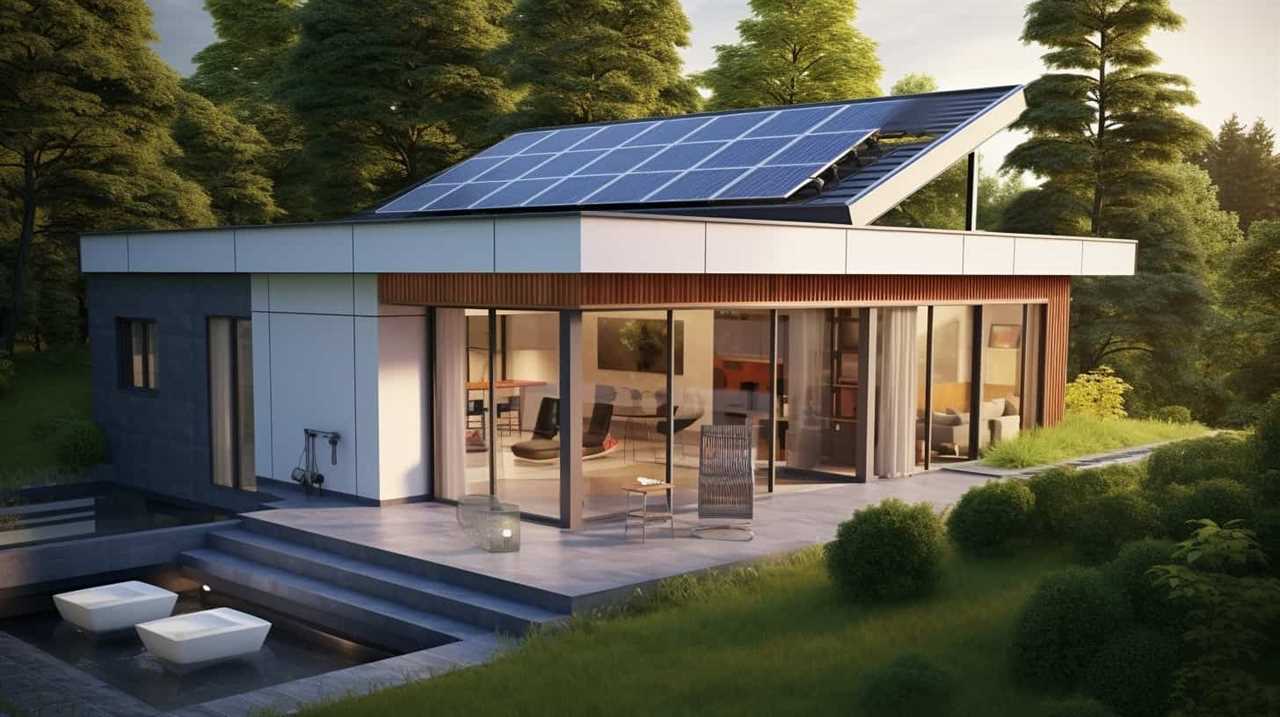
The installation process for heat pumps is also relatively straightforward. A professional HVAC technician will assess your home’s heating needs and recommend the appropriate size and type of heat pump. The installation typically involves positioning the outdoor unit, connecting it to the indoor unit, and making necessary electrical and refrigerant connections.
With proper installation and regular maintenance, heat pumps can provide efficient and reliable heating throughout the year. By choosing heat pumps, not only will you save money, but you’ll also contribute to a more sustainable and energy-efficient future.
Energy Efficiency
When it comes to energy efficiency, heat pumps offer significant advantages over traditional heating systems.
First, heat pumps have the potential for cost savings by reducing energy consumption. By transferring heat from the outside air or ground into your home, heat pumps can provide efficient heating without relying solely on electricity or fossil fuels.
Additionally, heat pumps contribute to a reduction in environmental impact by using renewable energy sources and emitting fewer greenhouse gases.
Cost Savings Potential
We can save up to 30% on our heating costs by choosing heat pumps over traditional heating methods. Heat pumps are highly energy efficient, consuming less energy compared to traditional heating systems. This means that they can provide the same level of warmth while using less energy, resulting in significant cost savings over time.
Heat pumps work by extracting heat from the air or ground and transferring it into your home, rather than generating heat directly. This process requires less energy, making heat pumps a more sustainable and cost-effective heating option.
Additionally, the long-term savings potential of heat pumps is significant. Not only will you save on your monthly heating bills, but you’ll also reduce your carbon footprint, contributing to a greener and more sustainable future.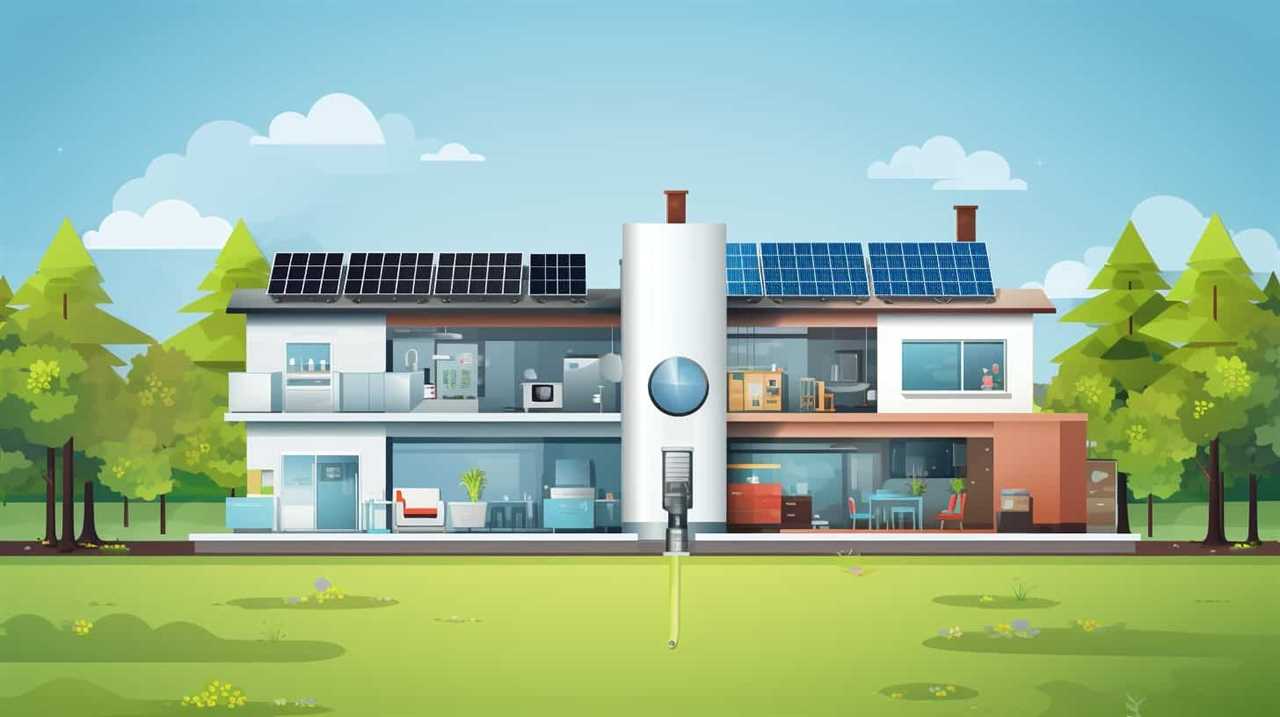
Environmental Impact Reduction
By using heat pumps instead of traditional heating methods, homeowners can significantly reduce their environmental impact and increase energy efficiency. Heat pumps utilize renewable energy sources, such as the air, ground, or water, to provide heating and cooling for homes. This environmentally sustainable approach minimizes the reliance on fossil fuels and reduces greenhouse gas emissions.
Consider the following benefits of heat pumps:
Lower carbon footprint: Heat pumps operate by transferring heat rather than generating it from scratch, resulting in reduced energy consumption and lower carbon emissions.
Energy efficiency: Heat pumps can produce up to four units of heat for every unit of electricity consumed, making them highly efficient in converting energy.

Reduced reliance on non-renewable resources: By utilizing renewable energy sources, heat pumps contribute to a more sustainable future by reducing dependence on finite resources.
Environmental Benefits
When it comes to considering the environmental benefits of heat pumps, there are two key points to keep in mind.
First, heat pumps greatly reduce carbon emissions compared to traditional heating systems. This is because heat pumps transfer heat rather than generate it, resulting in lower energy consumption and greenhouse gas emissions.
Second, heat pumps offer energy efficiency advantages, which not only benefit the environment but also lead to cost savings for homeowners.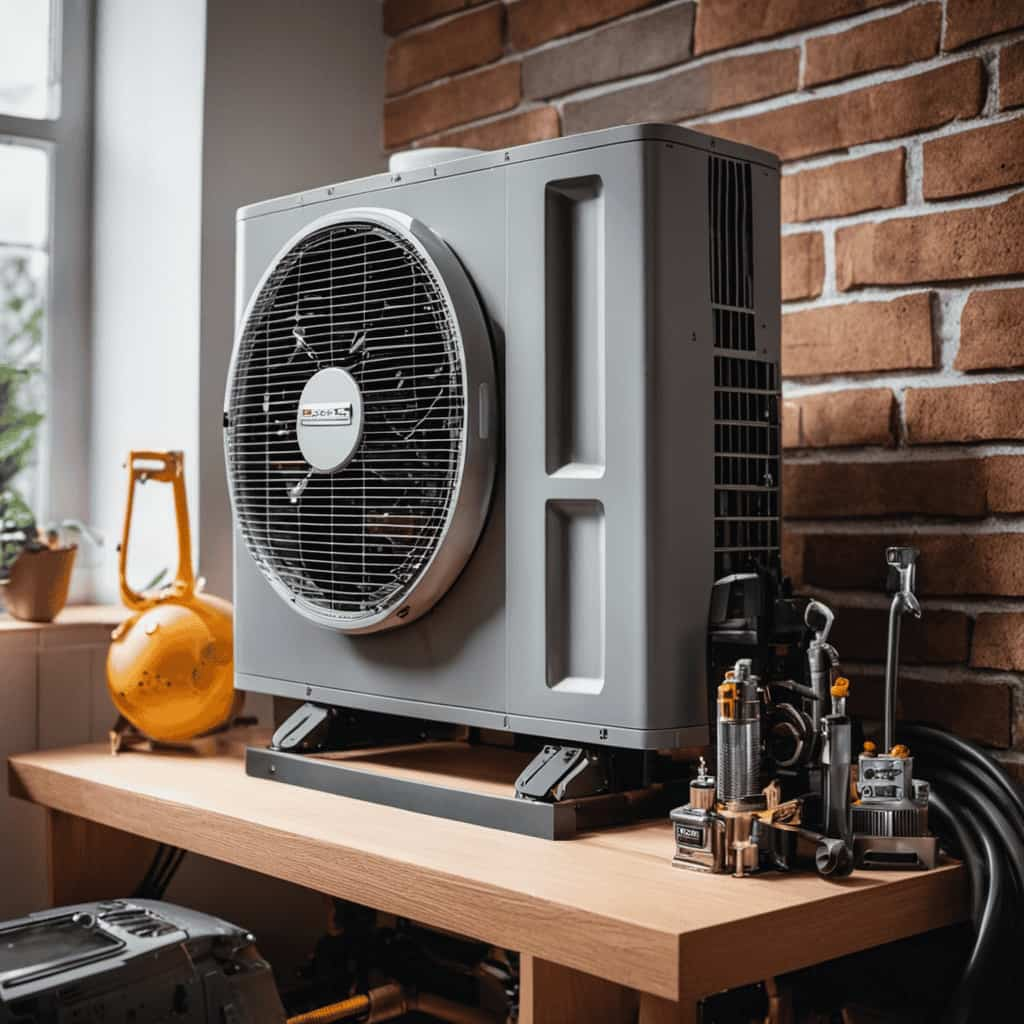
Reduced Carbon Emissions
Using heat pumps instead of traditional heating methods can significantly decrease carbon emissions, benefiting the environment. Heat pumps are sustainable heating options that offer numerous environmental benefits, including:
Lowered carbon footprint: Heat pumps operate by extracting heat from the surrounding environment, such as the air or ground, and transferring it into the building. This process consumes significantly less energy compared to burning fossil fuels, resulting in reduced carbon emissions.
Renewable energy utilization: Heat pumps can be powered by renewable energy sources, such as solar or wind power. By utilizing clean and sustainable energy, heat pumps further contribute to the reduction of carbon emissions and dependence on non-renewable resources.
Improved air quality: Since heat pumps don’t burn fossil fuels, they don’t release harmful pollutants into the air. This leads to improved indoor and outdoor air quality, benefiting both human health and the environment.
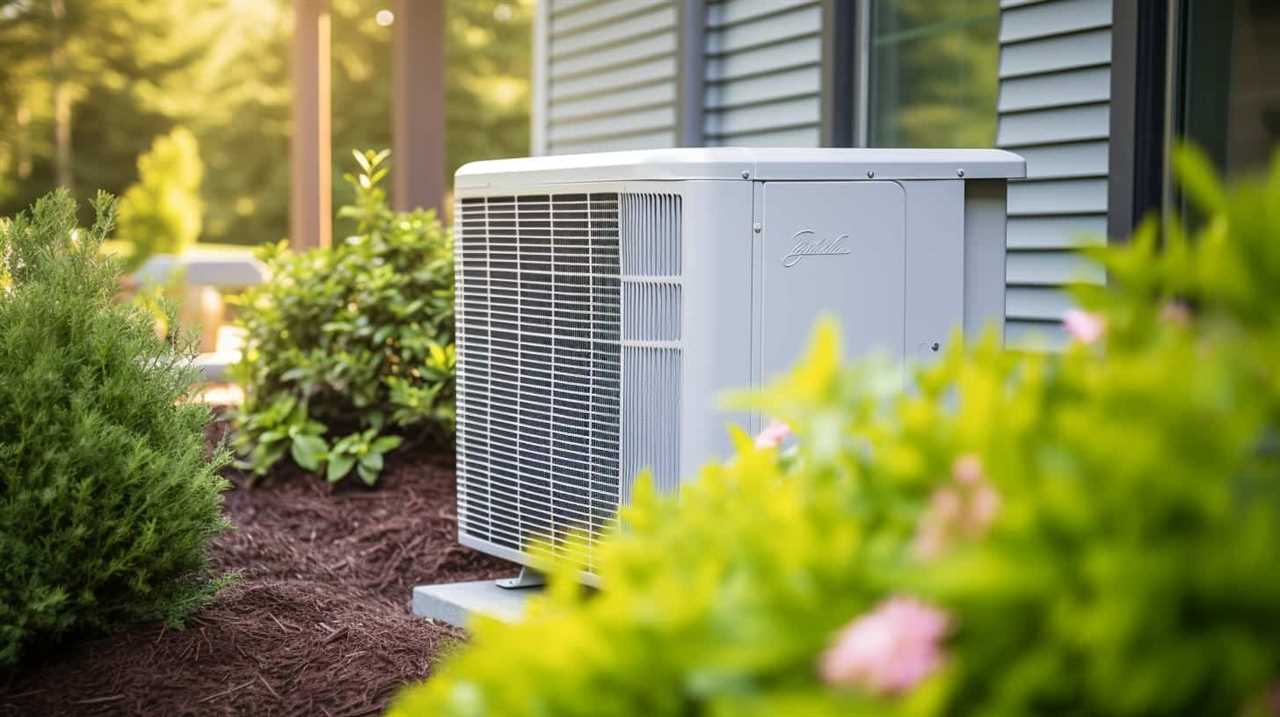
Energy Efficiency Advantages
We can maximize our energy efficiency and contribute to environmental preservation by opting for heat pumps instead of traditional heating methods.
Heat pumps are highly energy-efficient, as they transfer heat rather than generate it, resulting in significant energy savings. This efficiency translates into long-term savings for homeowners, as heat pumps use less electricity to provide the same level of heating as traditional systems.
In addition to reducing energy consumption, heat pumps also reduce greenhouse gas emissions, helping to combat climate change and improve air quality.
Versatility and Flexibility
We frequently find that heat pumps offer a wide range of options and adaptability, making them a flexible choice for heating needs. Here are some reasons why heat pumps are so versatile and flexible: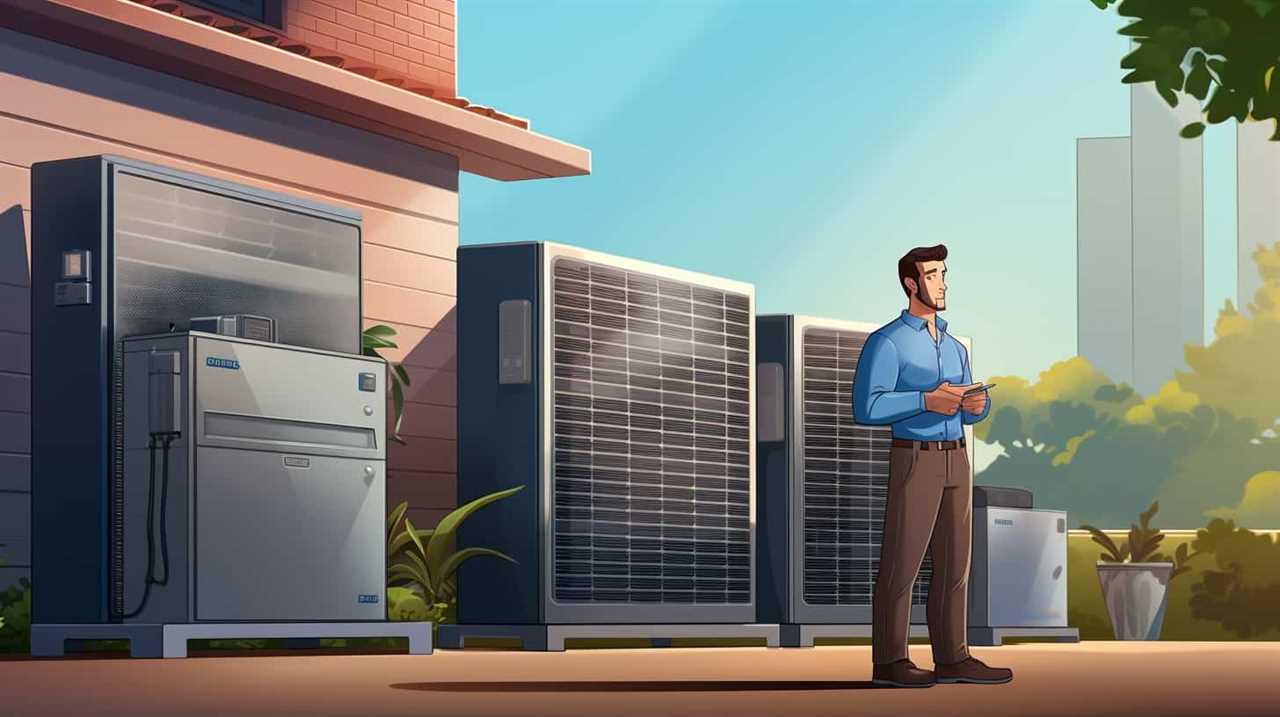
Versatile applications: Heat pumps can be used for both heating and cooling, making them suitable for year-round comfort. Whether you need to warm your home in the winter or cool it in the summer, a heat pump can do both efficiently.
Flexible installation options: Heat pumps can be installed in various locations, including the ground, air, or water sources. This flexibility allows homeowners to choose the installation method that best suits their property and needs.
Easy zoning: With heat pumps, you can easily create different zones in your home, allowing you to control the temperature in each area independently. This enables personalized comfort and energy savings.
With their versatile applications and flexible installation options, heat pumps provide a solution that can meet your heating and cooling needs throughout the year.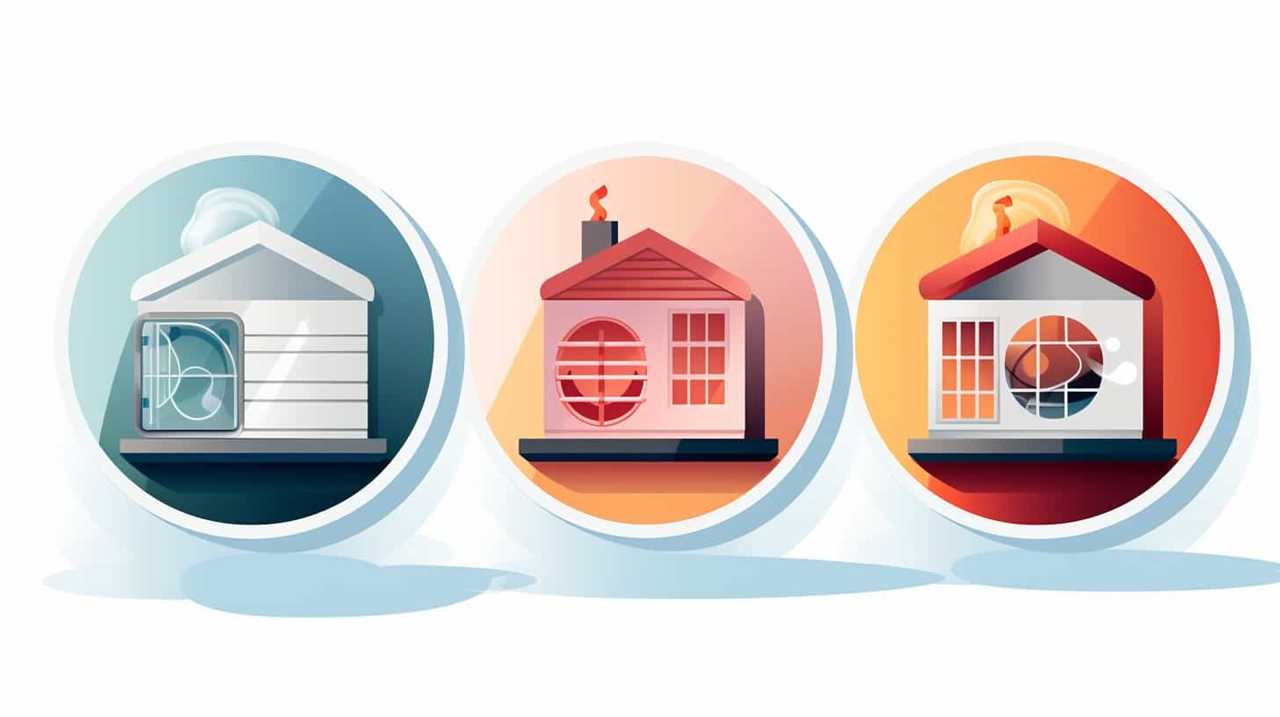
Now let’s explore how they offer year-round comfort.
Year-Round Comfort
Our aim is to provide homeowners with uninterrupted comfort throughout the year using heat pumps.
Heat pumps offer improved temperature control and year-round energy savings, making them an excellent choice for maintaining a comfortable indoor environment.
Unlike traditional heating systems that rely on burning fuel, heat pumps transfer heat from the air or ground to warm your home during the colder months. In the summer, they reverse the process, extracting heat from your home and releasing it outside, keeping you cool and comfortable.
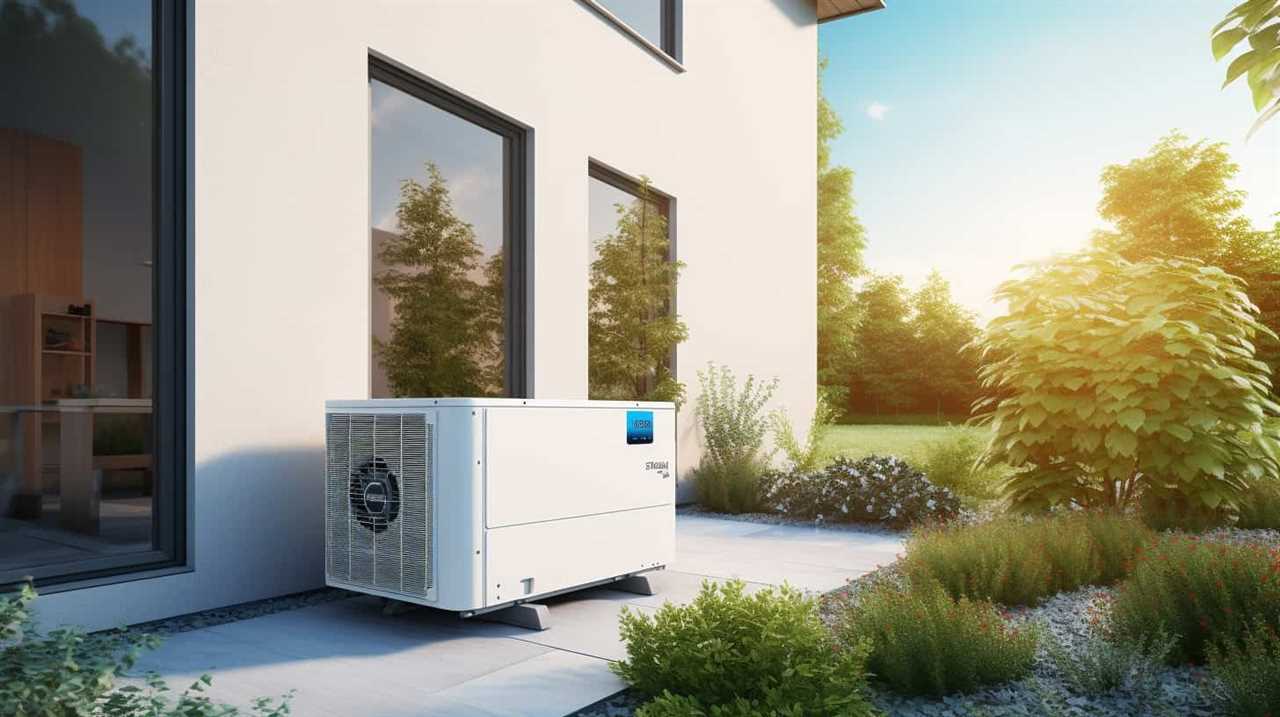
This versatility allows heat pumps to provide consistent comfort all year long, eliminating the need for separate heating and cooling systems.
Additionally, heat pumps are highly efficient, resulting in significant energy savings and reduced utility bills.
With heat pumps, you can enjoy optimal comfort and savings throughout every season.
Durability and Longevity
Fortunately, heat pumps are built to withstand the test of time and provide long-lasting performance. Investing in a heat pump comes with a multitude of durability benefits and an extended lifespan that traditional heating systems simply can’t match.
When you choose a heat pump, you can expect:
Robust construction: Heat pumps are designed with durable materials and components that can withstand harsh weather conditions and frequent use. This ensures that your heat pump will continue to operate efficiently for years to come.
Minimal wear and tear: Heat pumps operate by transferring heat rather than generating it, which means there’s less strain on the system compared to traditional heating methods. This results in reduced wear and tear, leading to a longer lifespan.
Reliable performance: Heat pumps are built to provide consistent heating and cooling throughout the year, ensuring your comfort regardless of the season.
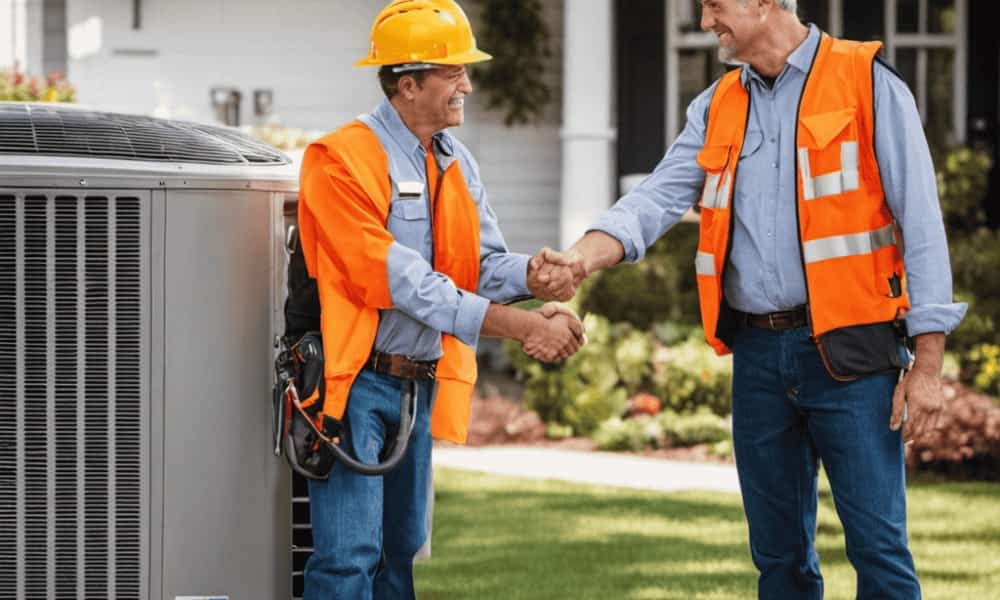
With their durability benefits and extended lifespan, heat pumps offer a reliable heating solution that will serve you well for many years. And the best part? They require reduced maintenance, which we’ll discuss in the next section.
Reduced Maintenance
Additionally, heat pumps require less maintenance compared to traditional heating systems, making them a convenient and hassle-free choice. With reduced maintenance, homeowners can save time, money, and energy on servicing their heating system. Heat pumps have fewer mechanical parts, reducing the risk of breakdowns and the need for frequent repairs. This improved reliability ensures that the heating system functions smoothly throughout the year. To emphasize the benefits of reduced maintenance, let’s take a look at the following table:
| Traditional Heating Systems | Heat Pumps |
|---|---|
| Frequent maintenance | Reduced maintenance |
| Costly repairs | Fewer breakdowns |
| Regular filter replacements | Longer lifespan |
As you can see, heat pumps offer a significant advantage in terms of maintenance and reliability. By choosing a heat pump, homeowners can enjoy peace of mind knowing that their heating system will require minimal attention and provide long-lasting performance.
Quieter Operation
When it comes to choosing a heating system, one of the key factors to consider is the level of noise it produces. Heat pumps offer significant noise reduction benefits compared to traditional heating systems, resulting in a more peaceful indoor environment.
With their advanced technology and sound-dampening features, heat pumps create minimal sound disturbance, allowing you to enjoy a quiet and comfortable home.
Noise Reduction Benefits
We can enjoy the noise reduction benefits of heat pumps, as they operate much quieter than traditional heating systems. This is especially beneficial for those who desire a peaceful indoor environment.
Here are some reasons why heat pumps are a great choice for noise reduction:
Soundproofing options: Heat pumps can be installed with soundproofing materials to further reduce noise levels. This ensures that you can enjoy a quiet and serene atmosphere in your home or office.
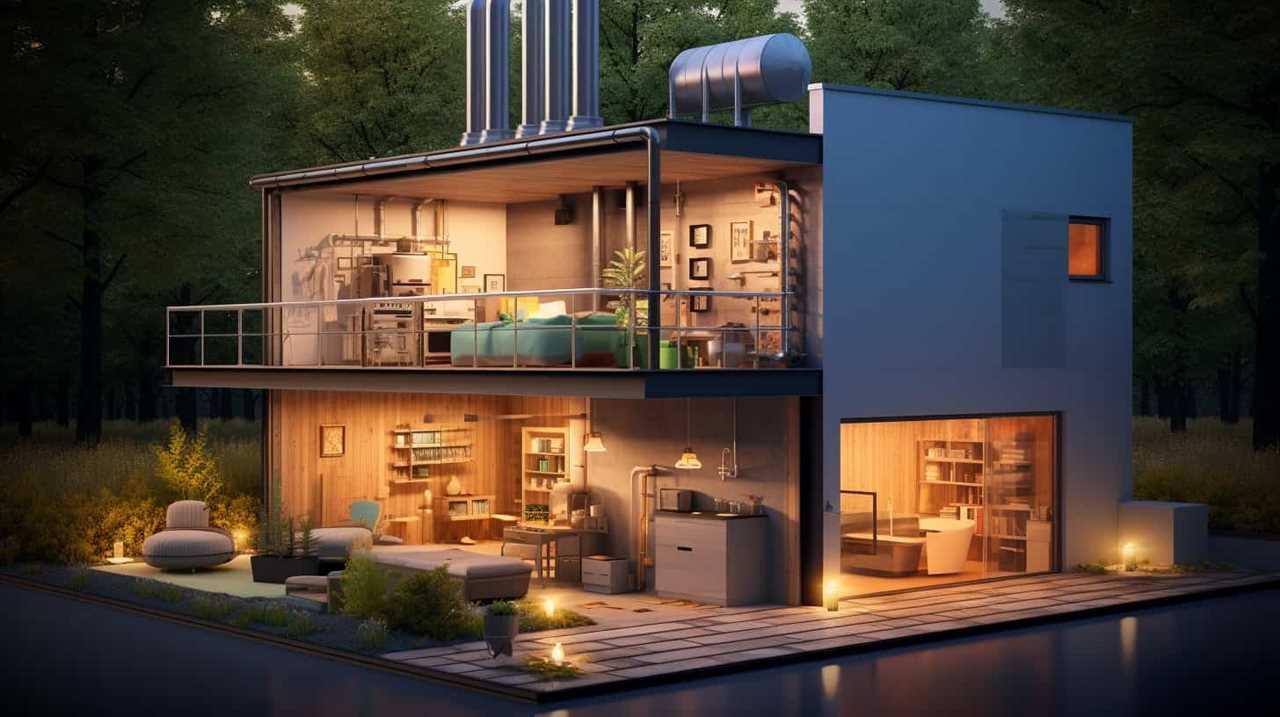
Noise pollution reduction: Heat pumps produce significantly less noise compared to traditional heating systems. This means less disturbance and a more peaceful environment for you and your family.
Quieter operation: Heat pumps use advanced technology to operate quietly. You won’t have to worry about the constant humming or loud noises that often come with traditional heating systems.
By choosing heat pumps, you can create a tranquil space where you can relax and enjoy your surroundings without the constant noise interruptions.
Now, let’s move on to the next section and explore the benefits of a peaceful indoor environment.

Peaceful Indoor Environment
To create a peaceful indoor environment, heat pumps offer quieter operation and a more serene atmosphere than traditional heating systems. The noise reduction benefits of heat pumps contribute to improved sleep quality and reduced stress levels.
Unlike traditional heating systems that often produce loud and disruptive noises, heat pumps operate quietly, allowing you to relax and enjoy a peaceful atmosphere in your home. This is especially important during the night when excessive noise can disturb sleep and lead to sleep deprivation.
With heat pumps, you can experience a calm and tranquil environment, promoting a restful night’s sleep and enhancing overall well-being. By choosing heat pumps, you not only benefit from their efficient heating capabilities but also create a harmonious space where you can unwind and recharge.
With these noise reduction benefits, you can enjoy a peaceful indoor environment that promotes improved sleep quality and reduced stress levels.
In the next section, we’ll explore how heat pumps minimize sound disturbance even further.
Minimal Sound Disturbance
Our heat pumps provide a quieter operation that minimizes sound disturbance and enhances the overall tranquility of your home. With our advanced technology and design, you can enjoy a peaceful indoor environment without the constant humming or loud noises associated with traditional heating systems.
Here are three reasons why our heat pumps excel in reducing noise pollution:
Superior insulation: Our heat pumps are equipped with soundproofing options that effectively absorb and block out noise, ensuring a quiet and comfortable atmosphere in your home.
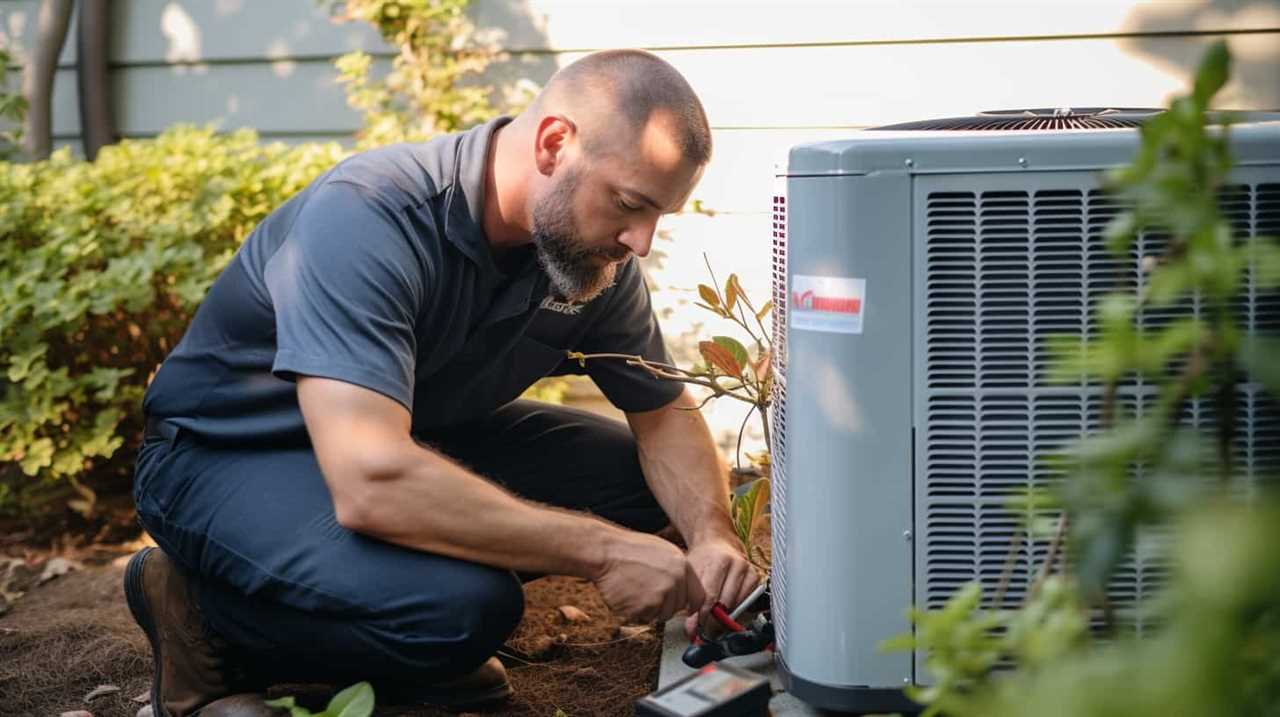
Precision engineering: Our heat pumps are meticulously engineered to minimize vibration and eliminate rattling noises, resulting in a smooth and silent operation.
Smart airflow design: Our heat pumps feature innovative airflow systems that distribute air evenly and quietly throughout your home, creating a serene ambience while effectively regulating temperature.
Choose our heat pumps for a quieter, more peaceful living space, and experience the benefits of noise pollution reduction firsthand.
Improved Indoor Air Quality
With heat pumps, we can enjoy improved indoor air quality. Heat pumps not only provide heat during cold weather but also improve ventilation, leading to better air circulation inside our homes. This improved ventilation helps remove pollutants, allergens, and odors from the air, creating a healthier environment for us and our loved ones.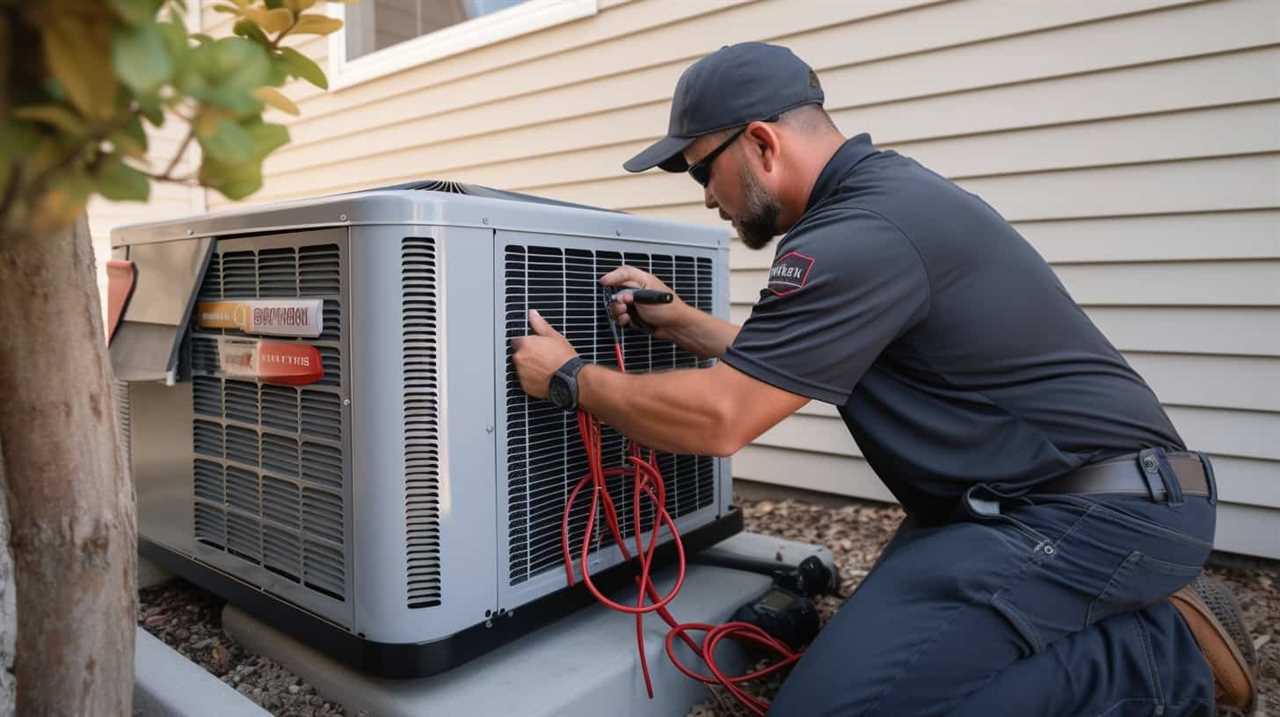
By continuously circulating and filtering the air, heat pumps reduce the presence of dust, mold, and other contaminants that can trigger respiratory issues and allergies. This is particularly beneficial for individuals with asthma or other respiratory conditions.
In addition to the health benefits, improved indoor air quality also contributes to a more comfortable living space. With heat pumps, we can breathe easy and enjoy a fresh and clean indoor environment all year round.
Government Incentives and Rebates
We can take advantage of various government incentives and rebates for choosing heat pumps over traditional heating methods. These incentives and rebates are designed to provide financial assistance and make the transition to heat pumps more affordable for homeowners.
Here are some ways in which the government supports the adoption of heat pumps:

Tax credits: The government offers tax credits for the purchase and installation of energy-efficient heat pumps. These credits can help offset the initial costs and make heat pumps more affordable.
Rebate programs: Many states and local governments have rebate programs that provide cash incentives for installing heat pumps. These programs can significantly reduce the upfront costs and encourage homeowners to make the switch.
Low-interest loans: Some government agencies offer low-interest loans specifically for energy-efficient home improvements, including heat pump installations. These loans provide homeowners with affordable financing options and make it easier to afford the upfront costs.
Frequently Asked Questions
Are Heat Pumps Suitable for All Types of Homes, Including Older Ones With Outdated Heating Systems?
Heat pumps can be suitable for older homes with outdated heating systems. They offer energy efficiency and can be a cost-effective choice for heating. Consider the specific needs of your home before making a decision.
How Does the Installation Process of a Heat Pump Compare to That of a Traditional Heating System?
When comparing the installation process of heat pumps to traditional heating systems, we found that heat pumps are more cost-effective. They require less extensive installation and can be easily integrated into existing systems.
Can a Heat Pump Also Be Used for Cooling Purposes During the Summer Months?
Yes, heat pumps can also be used for cooling purposes during the summer months. They are a great choice for residential use because of their energy efficiency and ability to provide both heating and cooling.
Are There Any Specific Requirements or Considerations for Maintaining and Servicing a Heat Pump?
Specific maintenance requirements and servicing considerations for heat pumps include regular filter cleaning or replacement, checking and maintaining proper refrigerant levels, and scheduling professional inspections and tune-ups to ensure optimum performance and lifespan.
What Are the Potential Drawbacks or Limitations of Using Heat Pumps Compared to Traditional Heating Systems?
When considering potential limitations of heat pumps compared to traditional heating systems, it is important to assess their energy efficiency. Heat pumps offer higher efficiency levels, resulting in cost savings and reduced environmental impact.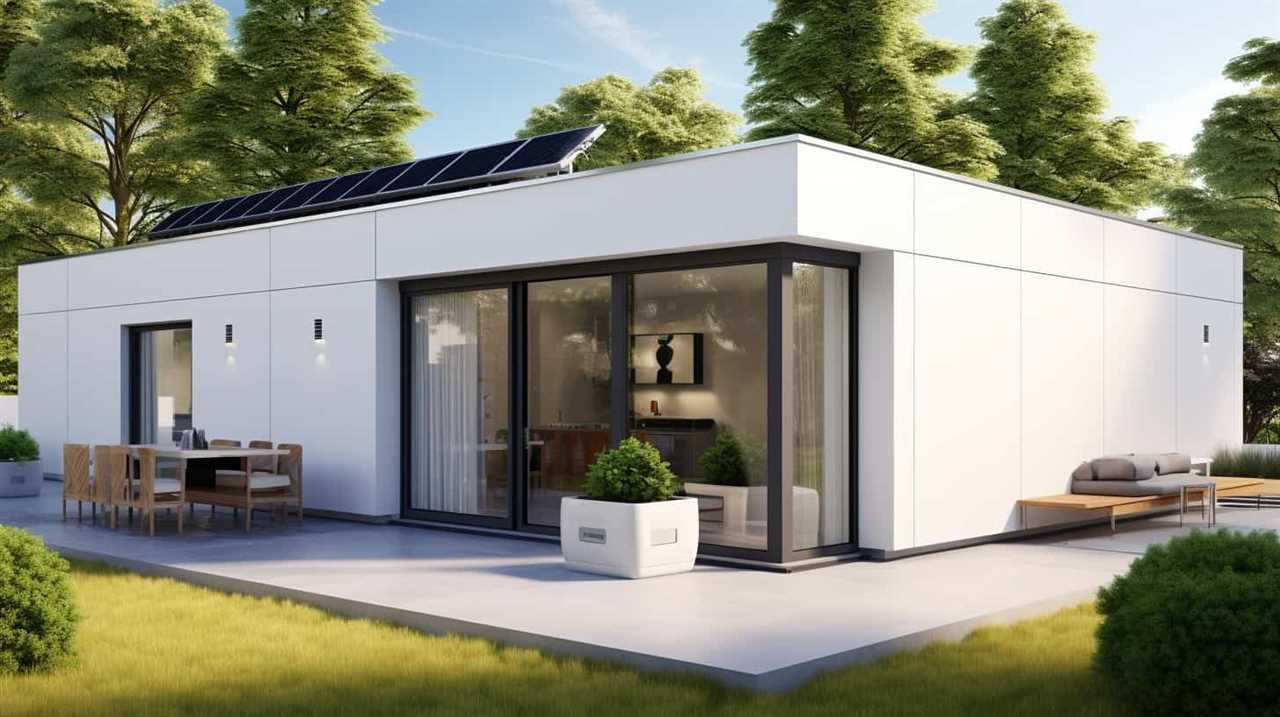
How Do Heat Pumps Help in Reducing Energy Consumption Compared to Traditional Heating Methods?
Heat pumps and energy consumption: Heat pumps outperform traditional heating methods in reducing energy consumption. By utilizing existing heat sources, such as air or groundwater, heat pumps transfer heat into buildings, reducing the need for fossil fuels. They can operate up to 50% more efficiently, saving significant energy and lowering utility bills. With their sustainable approach, heat pumps are becoming an increasingly popular choice for environmentally conscious consumers.
Conclusion
In conclusion, heat pumps offer a multitude of benefits that make them a superior choice compared to traditional heating systems. They provide cost savings, energy efficiency, and environmental benefits. Heat pumps also offer versatility, flexibility, and year-round comfort.
With reduced maintenance, quieter operation, and improved indoor air quality, heat pumps truly enhance the overall comfort and well-being of your home. And let’s not forget the cherry on top – government incentives and rebates make this decision even more enticing.
So why settle for anything less when you can have it all with a heat pump?
Energy Consumption
7 Essential Factors to Understand High-Efficiency Heat Pumps

We have everything you need to know about high-efficiency heat pumps covered.
In this article, we’ll dive into the seven essential factors you need to know.
From SEER and HSPF ratings to proper sizing and the role of refrigerant, we’ll break it all down for you.
Plus, we’ll explore energy-saving features, installation tips, and regular maintenance requirements.
Get ready to make informed decisions and maximize the performance of your heat pump.
Let’s get started!
Key Takeaways
- SEER and HSPF ratings are important for measuring cooling and heating efficiency respectively, with higher ratings indicating greater efficiency and lower energy consumption.
- Proper sizing of heat pumps is crucial for optimal performance, as oversized or undersized units can waste energy and reduce efficiency.
- Variable-speed compressors offer improved energy savings, enhanced comfort, and temperature control, as well as quieter operation and extended HVAC system lifespan.
- Energy savings can be achieved with compressors by adjusting their speed based on heating or cooling needs, leading to improved energy efficiency, precise temperature control, and reduced energy consumption.
The Importance of SEER and HSPF Ratings
We need to understand the importance of SEER (Seasonal Energy Efficiency Ratio) and HSPF (Heating Seasonal Performance Factor) ratings when considering high-efficiency heat pumps. These ratings provide valuable information about the energy efficiency and performance of the heat pump, helping us make informed decisions that can significantly impact our energy consumption.
SEER rating measures the cooling efficiency of a heat pump during the cooling season. It indicates how much cooling output the heat pump provides relative to the amount of energy it consumes. A higher SEER rating means greater efficiency and lower energy consumption, resulting in reduced electricity bills.
On the other hand, HSPF rating measures the heating efficiency of a heat pump during the heating season. It represents the ratio of heat output to electricity consumption. Similar to SEER, a higher HSPF rating indicates greater efficiency and lower energy usage, saving both money and resources.
Comparing the SEER and HSPF ratings can help us understand the overall efficiency of a heat pump. It’s important to note that while a high SEER rating may indicate excellent cooling efficiency, the HSPF rating may not be as high, and vice versa. Therefore, it’s crucial to consider both ratings when selecting a high-efficiency heat pump that will effectively meet our cooling and heating needs while minimizing energy consumption.
Proper Sizing for Optimal Performance
To ensure optimal performance, it’s important to accurately size high-efficiency heat pumps. Proper sizing not only ensures efficient operation but also extends the lifespan of the system. Here are four key reasons why proper sizing is crucial for optimal performance:
-
Energy Efficiency: An oversized heat pump will cycle on and off frequently, wasting energy and reducing efficiency. On the other hand, an undersized heat pump will struggle to meet the heating or cooling demands of the space, leading to increased energy consumption. Properly sized heat pumps operate at maximum efficiency, providing the desired comfort while minimizing energy usage.
-
Comfort: Properly sized heat pumps deliver consistent and even heating or cooling throughout the space. Oversized units tend to create temperature swings, resulting in discomfort. Conversely, undersized units may struggle to maintain the desired temperature, leading to uneven heating or cooling.
-
System Lifespan: An accurately sized heat pump doesn’t have to work as hard to meet the heating or cooling demands, resulting in less wear and tear on the system. This extends the lifespan of the heat pump and reduces the need for frequent repairs or replacements.
-
Proper Installation: Proper sizing is a critical part of the installation process. A professional HVAC technician considers factors such as the size of the space, insulation levels, and climate conditions to determine the appropriate heat pump size. This ensures that the system operates efficiently and effectively from the start.
Understanding Variable-Speed Compressors
When it comes to high-efficiency heat pumps, understanding variable-speed compressors is crucial.
These compressors offer several benefits, including improved energy savings and enhanced comfort levels.
Benefits of Variable-Speed
Variable-speed compressors offer significant advantages, including improved efficiency and enhanced comfort. These benefits make them a popular choice for homeowners looking to optimize their HVAC system.
Here are four reasons why variable-speed compressors are beneficial:
-
Energy Efficiency: Variable-speed compressors can adjust their speed to match the heating or cooling demand, resulting in reduced energy consumption. This enhanced energy efficiency not only lowers utility bills but also reduces the environmental impact.
-
Temperature Control: Variable-speed compressors allow for precise temperature control by modulating their output. This ensures a more consistent indoor climate, eliminating temperature fluctuations and providing optimal comfort throughout the day.
-
Reduced Noise Levels: Compared to single-speed compressors, variable-speed compressors operate at lower speeds, resulting in quieter operation. This is especially important for homeowners who value a peaceful and quiet living environment.
-
Extended Equipment Lifespan: The ability of variable-speed compressors to operate at lower speeds and reduce on-off cycling helps extend the lifespan of the HVAC system, reducing the need for frequent repairs and replacements.
With these benefits in mind, it’s evident that variable-speed compressors are an excellent choice for homeowners seeking energy efficiency and enhanced comfort.
Now, let’s delve into the next section to explore the potential energy savings associated with compressors.
Energy Savings With Compressors
By utilizing variable-speed compressors, we can achieve energy savings and optimize the performance of our HVAC system. These compressors are designed to adjust their speed based on the heating or cooling needs of the space, resulting in improved energy efficiency and cost effectiveness.
Variable-speed compressors operate at different speeds depending on the demand for heating or cooling. This allows for better control over the temperature and reduces the amount of energy consumed.
Here is a table showcasing the benefits of variable-speed compressors:
| Benefits of Variable-Speed Compressors | |
|---|---|
| Energy Efficiency | High |
| Cost Effectiveness | High |
| Temperature Control | Precise |
| Noise Level | Low |
| System Lifespan | Extended |
As you can see, variable-speed compressors offer significant advantages in terms of energy efficiency and cost effectiveness. They provide precise temperature control, operate quietly, and contribute to an extended lifespan of the HVAC system. Investing in this technology can lead to substantial energy savings while ensuring the comfort of your space.
Improved Comfort Levels
We can enhance our comfort levels by understanding how variable-speed compressors function. Variable-speed compressors are an essential component of high-efficiency heat pumps that provide improved energy efficiency and cost savings. Here are four key reasons why variable-speed compressors contribute to improved comfort levels:
-
Enhanced temperature control: Variable-speed compressors adjust their speed to match the heating or cooling demands of the space, ensuring a more consistent and comfortable indoor temperature.
-
Reduced noise levels: Variable-speed compressors operate at lower speeds, resulting in quieter operation compared to traditional compressors. This helps create a more peaceful and enjoyable environment.
-
Improved air quality: Variable-speed compressors run for longer periods at lower speeds, allowing for better air filtration and circulation. This helps remove pollutants and allergens, leading to improved indoor air quality.
-
Precise humidity control: Variable-speed compressors can modulate their operation to dehumidify the air more effectively, creating a comfortable and balanced indoor humidity level.
The Role of Refrigerant in Efficiency
The refrigerant plays a crucial role in the efficiency of high-efficiency heat pumps. Choosing the right refrigerant type is essential for optimizing performance and minimizing environmental impact. Traditional refrigerants such as R-22 have been widely used in heat pumps, but they’ve been found to contribute to ozone depletion and global warming. In response to these environmental concerns, newer refrigerants have been developed, such as R-410A and R-32, which have significantly lower environmental impact.
R-410A, also known as Puron, is a hydrofluorocarbon (HFC) refrigerant that doesn’t contain chlorine, making it ozone-friendly. It has become the standard refrigerant for most high-efficiency heat pumps due to its excellent thermodynamic properties and high energy efficiency. R-32, another HFC refrigerant, is gaining popularity due to its lower global warming potential compared to R-410A. It offers improved energy efficiency and reduces the carbon footprint of heat pumps.
By using environmentally friendly refrigerants, high-efficiency heat pumps can’t only provide exceptional heating and cooling performance but also contribute to a sustainable future. These refrigerants are designed to maximize efficiency while minimizing negative environmental impact.
In the next section, we’ll explore the energy-saving features and technology that further enhance the efficiency of high-efficiency heat pumps.
Energy-Saving Features and Technology
With the incorporation of advanced controls and innovative technologies, high-efficiency heat pumps can effectively reduce energy consumption and optimize performance. These energy-saving features and technologies not only contribute to lower utility bills but also help protect the environment by reducing greenhouse gas emissions.
Here are four key aspects of energy-saving features and technology in high-efficiency heat pumps:
-
Energy Efficient Controls: High-efficiency heat pumps are equipped with advanced control systems that allow for precise temperature regulation and efficient operation. These controls ensure that the heat pump operates at optimal efficiency, adjusting the heating and cooling output based on the specific needs of the space.
-
Smart Technology Integration: Many high-efficiency heat pumps now incorporate smart technology, allowing homeowners to remotely control and monitor their heating and cooling systems. Through smartphone apps or web portals, users can adjust temperature settings, schedule operations, and receive energy consumption reports. This integration enables users to optimize energy usage and reduce wasteful practices.
-
Variable-Speed Compressors: High-efficiency heat pumps often feature variable-speed compressors that adjust their speed based on the demand for heating or cooling. This technology allows the heat pump to operate at lower speeds when the demand is lower, resulting in energy savings and improved comfort.
-
Heat Recovery Systems: Some high-efficiency heat pumps utilize heat recovery systems, which capture and recycle heat from areas that require cooling and transfer it to spaces that need heating. This technology maximizes energy efficiency by utilizing waste heat, reducing the overall energy consumption of the system.
Choosing the Right Installation Location
When choosing the right installation location for a high-efficiency heat pump, it’s important to consider factors such as available space, accessibility for maintenance, and proximity to the indoor and outdoor units.
The efficiency benefits of a high-efficiency heat pump can only be fully realized if it’s installed in an optimal location. First and foremost, there should be enough space around the unit to ensure proper airflow and ventilation. This is crucial for the heat pump to function efficiently and maintain its performance over time.
Additionally, accessibility for maintenance is essential for regular upkeep and servicing of the unit. It should be easy for technicians to access the heat pump for inspections, repairs, and cleaning.
Lastly, the installation location should take into account the proximity to both the indoor and outdoor units. This helps minimize the length of the refrigerant lines, reducing energy losses and maximizing the heat pump’s efficiency benefits. Moreover, choosing the right installation location can also have a positive environmental impact by reducing the energy consumption and carbon footprint of the heat pump.
Considering these factors when selecting the installation location ensures that the high-efficiency heat pump operates optimally, providing maximum efficiency benefits and minimizing its environmental impact.
Now, let’s move on to the next section, where we’ll discuss the regular maintenance and service requirements of high-efficiency heat pumps.
Regular Maintenance and Service Requirements
Regular maintenance and service are crucial for high-efficiency heat pumps to ensure optimal performance and longevity. By adhering to a regular maintenance schedule, homeowners can prevent potential issues and keep their heat pumps running efficiently.
The frequency and cost of service will vary depending on factors such as the type of heat pump and usage, but the long-term benefits of regular maintenance far outweigh the investment.
Importance of Regular Maintenance
We should prioritize maintaining our high-efficiency heat pumps to ensure optimal performance and longevity. Regular maintenance plays a crucial role in keeping our heat pumps running smoothly. Here are some important reasons why regular maintenance is essential:
-
Importance of Cleaning: Regular cleaning of the heat pump components, such as coils and filters, helps improve its efficiency by ensuring proper airflow and preventing dirt buildup that can hinder performance.
-
Troubleshooting Tips: Regular maintenance allows for the early detection of potential issues. This enables prompt troubleshooting and repairs, preventing major breakdowns and costly repairs in the future.
-
Extended Lifespan: Proper maintenance helps prolong the lifespan of the heat pump, reducing the need for premature replacements and saving money in the long run.
-
Energy Efficiency: Regular maintenance ensures that the heat pump operates at its highest efficiency, leading to reduced energy consumption and lower utility bills.
By regularly maintaining our high-efficiency heat pumps, we can maximize their performance, extend their lifespan, and minimize the risk of unexpected breakdowns.
Now, let’s delve into the next section about service frequency and cost.
Service Frequency and Cost
To ensure optimal performance and minimize potential problems, it is important for homeowners to schedule regular maintenance and be aware of the associated costs of servicing high-efficiency heat pumps. Regular maintenance helps to extend the lifespan of the heat pump and ensures that it operates at peak efficiency. Service intervals for high-efficiency heat pumps typically range from once a year to once every three years, depending on the manufacturer’s recommendations. It is crucial to adhere to these service intervals to prevent any potential issues and to maintain the heat pump’s performance. While the cost of servicing high-efficiency heat pumps may vary depending on factors such as the complexity of the system and the service provider, regular maintenance is generally considered cost-effective in the long run. By investing in regular maintenance, homeowners can avoid costly repairs and enjoy the benefits of a properly functioning heat pump for years to come.
| Service Interval | Frequency | Cost |
|---|---|---|
| Annual | Once a year | $100 – $300 |
| Biennial | Once every 2 years | $200 – $400 |
| Triennial | Once every 3 years | $300 – $500 |
Table 1: Service Intervals and Associated Costs for High-Efficiency Heat Pumps.
Please note that the costs provided in the table are approximate and may vary depending on various factors such as the location, the complexity of the system, and the specific maintenance tasks required. It is recommended to consult with a qualified HVAC professional for accurate cost estimates. Additionally, homeowners may also consider purchasing maintenance plans or service contracts offered by HVAC companies, which can provide additional benefits and cost savings in the long term.
Long-Term Performance Benefits
Regular maintenance and service requirements play a crucial role in ensuring the long-term performance benefits of high-efficiency heat pumps. Here are four ways in which they contribute:
-
Enhanced Efficiency: Regular maintenance helps keep the heat pump operating at its peak efficiency, reducing energy consumption and lowering long-term costs.
-
Extended Lifespan: Proper maintenance and servicing can extend the lifespan of the heat pump, reducing the need for premature replacement and further reducing long-term costs.
-
Improved Indoor Air Quality: Regular maintenance includes cleaning and replacing air filters, ensuring clean and fresh air circulation, which contributes to a healthier indoor environment.
-
Reduced Environmental Impact: By maintaining optimal performance, high-efficiency heat pumps consume less energy and reduce greenhouse gas emissions, minimizing their environmental impact over the long term.
Frequently Asked Questions
Are High-Efficiency Heat Pumps More Expensive to Purchase and Install Compared to Standard Models?
High-efficiency heat pumps can be more expensive to purchase and install compared to standard models. However, it’s important to consider the long-term benefits and cost savings they provide.
While the upfront cost may be higher, high-efficiency heat pumps offer significant energy savings over time. With their advanced technology and ability to efficiently transfer heat, these pumps can greatly reduce your energy consumption and lower your utility bills.
Can a High-Efficiency Heat Pump Be Used in Any Climate or Are They Only Suitable for Specific Regions?
In considering the use of high-efficiency heat pumps in different geographical locations, it’s important to understand their advantages in extreme climates.
High-efficiency heat pumps are designed to perform well in both hot and cold conditions, making them suitable for a wide range of climates.
However, it’s still necessary to consider factors such as insulation, sizing, and auxiliary heating options to ensure optimal performance in specific regions.
How Long Can a High-Efficiency Heat Pump Last Before It Needs to Be Replaced?
High-efficiency heat pumps have a significant longevity, which is an important factor to consider when investing in this technology. The replacement timeline for a high-efficiency heat pump can vary depending on several factors, such as regular maintenance, usage patterns, and environmental conditions.
However, on average, these heat pumps can last between 15 to 20 years before they may need to be replaced. It’s crucial to follow manufacturer recommendations and schedule regular inspections to ensure optimal performance and extend the lifespan of the heat pump.
Do High-Efficiency Heat Pumps Require Any Additional Equipment or Modifications to the Existing HVAC System?
When considering high-efficiency heat pumps, it’s important to understand if any additional equipment or modifications are required for the existing HVAC system.
High-efficiency heat pumps may require additional equipment such as a variable-speed air handler or a desuperheater for hot water production.
Additionally, modifications to the existing ductwork or electrical system may be necessary to ensure optimal performance and efficiency.
Consulting with a professional HVAC technician is recommended to determine the specific requirements for your system.
Are There Any Tax Credits or Incentives Available for Purchasing and Installing a High-Efficiency Heat Pump?
Yes, there are tax credits and incentives available for purchasing and installing a high-efficiency heat pump. These incentives vary depending on your location, but they can provide significant financial benefits.
Installing a high-efficiency heat pump not only helps you save on your energy bills but also qualifies you for these tax credits. It’s a win-win situation as you contribute to a cleaner environment while enjoying the benefits of energy savings and financial incentives.
What Are the Savings I Can Expect from Installing a High-Efficiency Heat Pump?
Wondering about the savings you can expect from a high-efficiency heat pump? Look no further than the heat pump savings checklist. Installing a high-efficiency heat pump can result in substantial energy savings. Enjoy reduced heating and cooling costs, lower energy consumption, and potential eligibility for government rebates. Upgrade to a high-efficiency heat pump and experience long-term financial benefits while enjoying a comfortable home.
Conclusion
In conclusion, understanding the essential factors of high-efficiency heat pumps is crucial for optimal performance and energy savings.
Just like a well-tuned instrument, these heat pumps require proper sizing, regular maintenance, and the right installation location to harmoniously deliver comfort and efficiency.
By considering SEER and HSPF ratings, variable-speed compressors, refrigerant efficiency, and energy-saving features, homeowners can create a symphony of cost-effective heating and cooling.
So, let’s orchestrate our homes with high-efficiency heat pumps and enjoy the sweet melody of energy savings.
Energy Consumption
Optimal Electricity Usage: Top Heat Pump Efficiency Tips

Are you searching for ways to increase energy efficiency and reduce your electricity consumption? You’re in luck! We have you covered with our best heat pump efficiency tips.
By understanding efficiency ratings, sizing and installing your heat pump properly, regular maintenance, and optimizing thermostat settings, you can save both energy and money.
Plus, we’ll show you how smart home technology can further enhance your heat pump’s efficiency.
Get ready to take control of your electricity usage and enjoy the freedom of a more efficient home.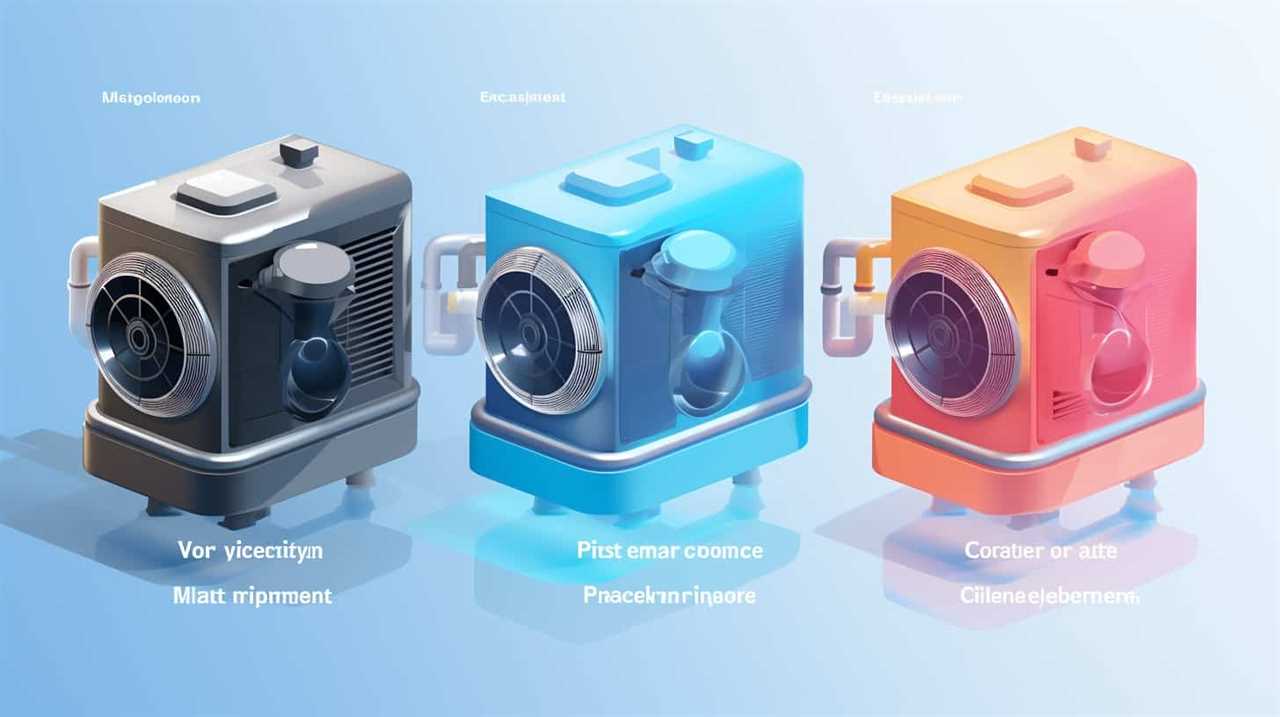
Key Takeaways
- Understanding heat pump efficiency ratings such as SEER, HSPF, and EER is crucial for maximizing energy savings.
- Proper sizing and installation of a heat pump ensures effective heating or cooling without energy waste.
- Regular maintenance and cleaning, including replacing air filters and cleaning the outdoor unit, can improve heat pump efficiency.
- Optimizing thermostat settings and supplementing with smart home technology can enhance energy efficiency and control electricity usage.
Understanding Heat Pump Efficiency Ratings
We’ll start by exploring the three main heat pump efficiency ratings. When it comes to heat pump technology and energy efficient heating, understanding these ratings is crucial.
The first rating to consider is the Seasonal Energy Efficiency Ratio (SEER). This measures the cooling efficiency of the heat pump and is calculated by dividing the cooling output by the energy input over a typical cooling season.
The second rating is the Heating Seasonal Performance Factor (HSPF), which measures the heating efficiency of the heat pump. It’s calculated by dividing the total heating output by the total electrical energy input over a typical heating season.
The third rating is the Energy Efficiency Ratio (EER), which measures the cooling efficiency of the heat pump at a specific outdoor temperature.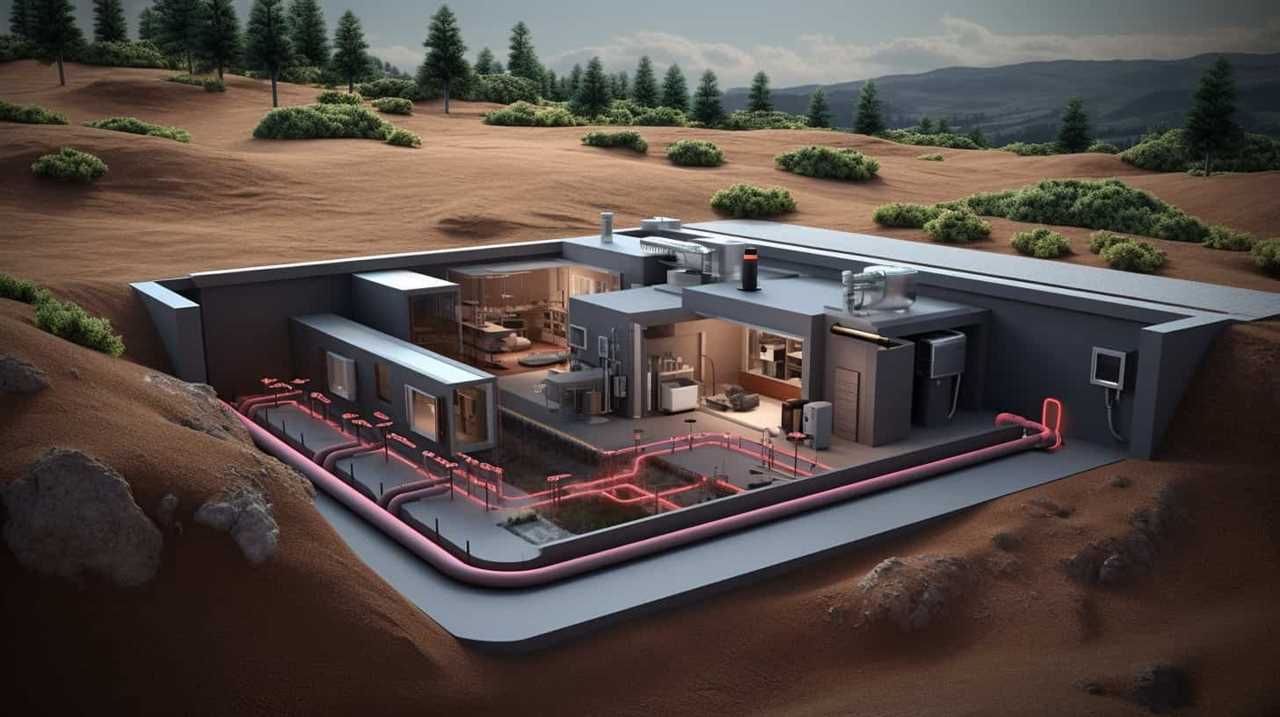
Proper Sizing and Installation for Maximum Efficiency
For maximum efficiency, we recommend ensuring proper sizing and installation of your heat pump.
Proper sizing is crucial to ensure that your heat pump can effectively heat or cool your space without wasting energy. A heat pump that’s too small will struggle to meet the demands of your home, leading to increased energy consumption and higher utility bills. On the other hand, a heat pump that’s too large will cycle on and off frequently, resulting in inefficient operation and unnecessary wear and tear. To determine the right size for your heat pump, it’s best to consult with a professional HVAC technician who can perform a load calculation based on the size and layout of your home.
Additionally, proper installation is essential for optimal performance. Improper installation can lead to air leakage, reduced efficiency, and potential safety hazards. It’s crucial to hire a qualified and experienced HVAC contractor to ensure that your heat pump is installed correctly.
Regular heat pump maintenance is also important for energy savings. Cleaning or replacing air filters regularly, inspecting and cleaning coils, and checking refrigerant levels can all help improve the efficiency of your heat pump.

Regular Maintenance and Cleaning to Improve Efficiency
Regular maintenance and cleaning are essential to improve the efficiency of our heat pump. By following proper maintenance schedules and regularly cleaning our heat pump, we can ensure that it operates at optimal efficiency. Here are three important steps to consider:
Regular filter replacement: One of the simplest yet most effective ways to improve heat pump efficiency is by regularly replacing the air filters. Clogged filters restrict airflow, forcing the system to work harder and use more energy. By replacing the filters as recommended by the manufacturer, we can ensure proper airflow and maximize efficiency.
Cleaning the outdoor unit: The outdoor unit of the heat pump can accumulate dirt, leaves, and debris over time, obstructing airflow. Regularly cleaning the unit by removing any debris and ensuring unobstructed airflow can significantly improve efficiency and prevent potential issues.
Professional maintenance: It’s also advisable to schedule regular professional maintenance for our heat pump. A qualified technician can inspect and clean the system thoroughly, identifying any potential issues and ensuring that all components are functioning optimally.
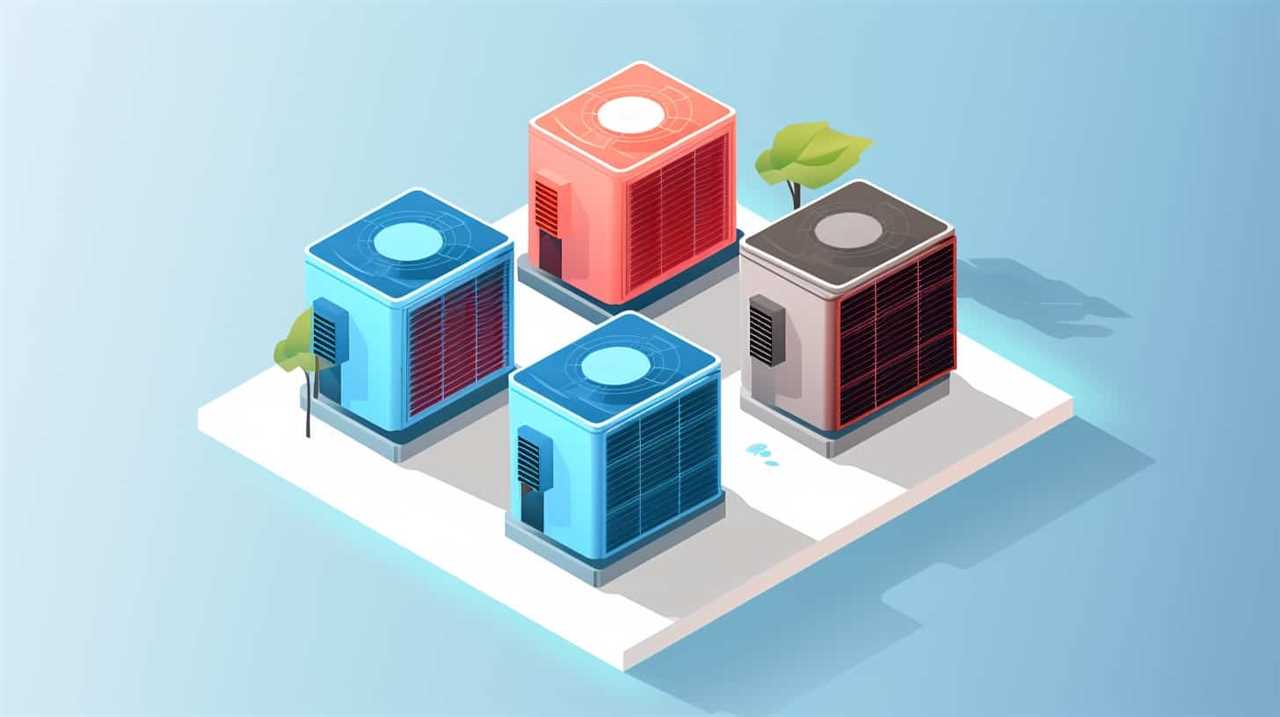
Optimizing Thermostat Settings for Energy Savings
The optimal thermostat settings can significantly impact our energy savings. By setting our thermostats to energy efficient temperature settings, we can reduce our energy consumption and save money on our electricity bills. Smart home automation systems can also help us achieve these energy savings by allowing us to control and monitor the temperature settings remotely. Here is a table showcasing some recommended temperature settings for different scenarios:
| Scenario | Recommended Temperature |
|---|---|
| Occupied | 68-72°F |
| Sleeping | 65-68°F |
| Away | 60-65°F |
Supplementing With Smart Home Technology for Enhanced Efficiency
With smart home technology, we can enhance our efficiency in using heat pumps by integrating automated controls and monitoring systems. By incorporating smart home automation into our heating systems, we can optimize energy usage and reduce wasted electricity. Here are three ways smart home technology can help us achieve enhanced efficiency:
Automated Scheduling: Smart thermostats allow us to create customized heating schedules based on our daily routines. This ensures that the heat pump operates only when needed, saving energy and reducing electricity bills.
Remote Access: With smart home automation, we can control our heat pumps remotely through smartphone apps. This allows us to adjust the temperature and monitor energy usage even when we’re away from home, giving us greater control and flexibility.
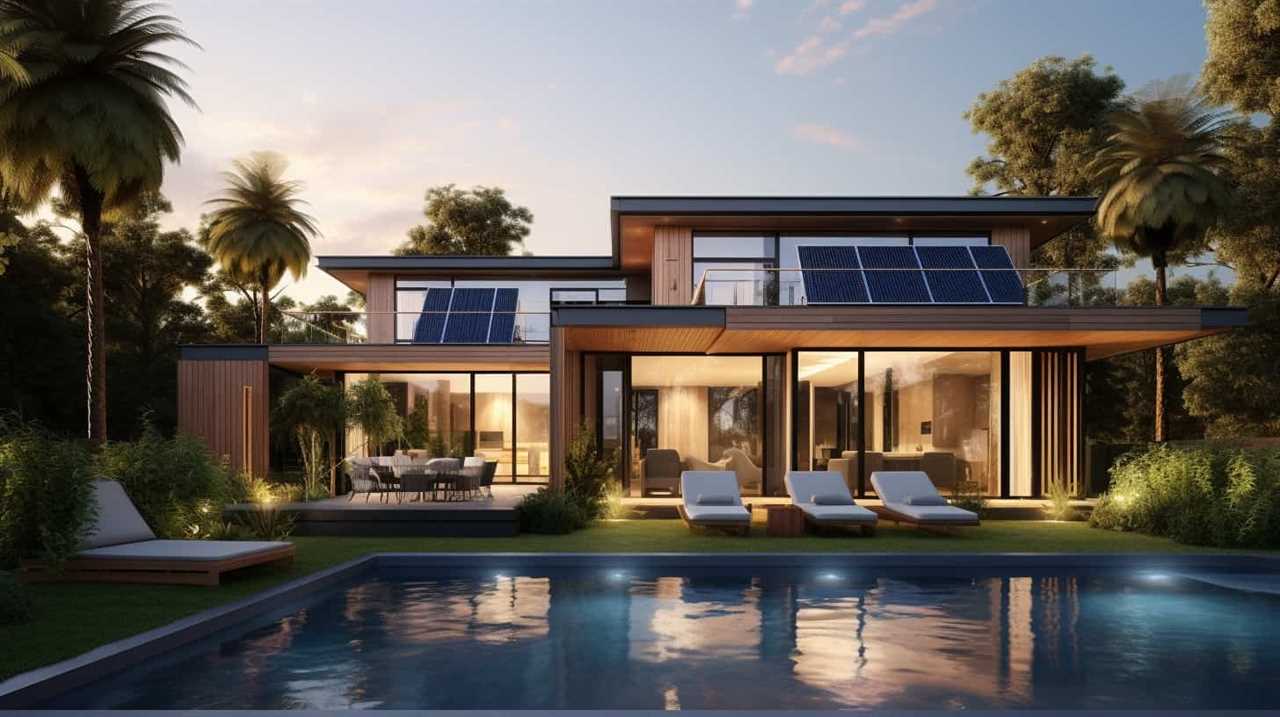
Energy Monitoring: Smart home systems provide real-time energy consumption data, allowing us to track our usage and identify areas of improvement. By understanding how much energy our heat pumps are using, we can make informed decisions to optimize efficiency and reduce waste.
Frequently Asked Questions
Are There Any Government Incentives or Rebates Available for Homeowners Who Install Heat Pumps?
There are government incentives and energy rebates available for homeowners who install heat pumps. These incentives and rebates can help offset the cost of installation and encourage energy-efficient practices in homes.
Can a Heat Pump Be Used in Extremely Cold Climates, or Is It Only Effective in Moderate Temperatures?
Can a heat pump handle extreme cold or only work in moderate temperatures? We’ll explore heat pump efficiency in both scenarios and share maintenance tips for optimal performance and longevity.
How Long Does a Heat Pump Typically Last Before Needing to Be Replaced?
Heat pumps typically last around 15-20 years before needing replacement. Regular heat pump maintenance, such as cleaning filters and checking for signs of a failing heat pump, can help extend its lifespan.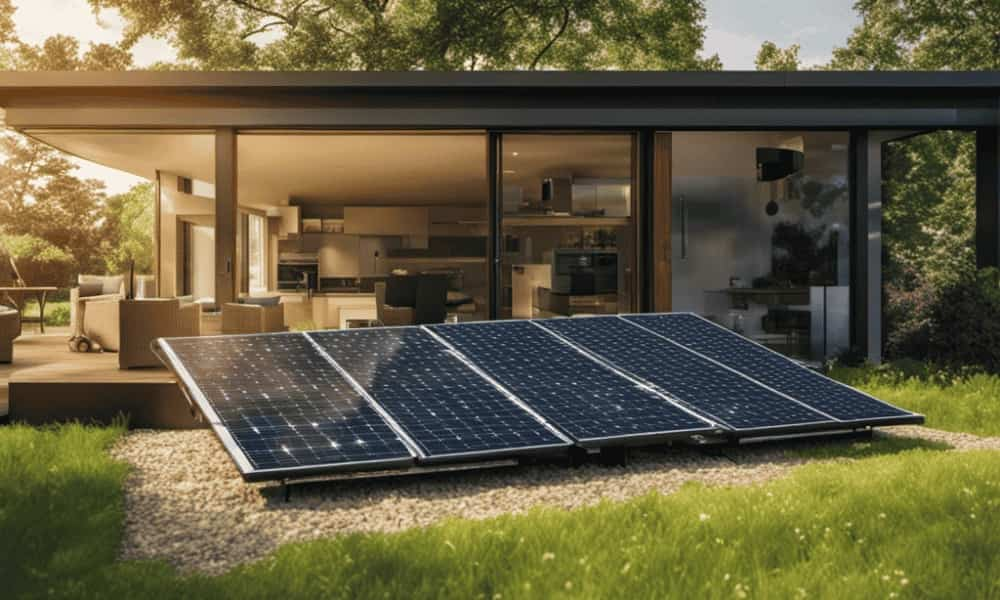
Are There Any Common Issues or Problems That Can Arise With a Heat Pump System?
Common issues with heat pump systems can include refrigerant leaks, frozen coils, and inadequate heating or cooling. Troubleshooting heat pump problems may involve checking for proper airflow, ensuring thermostat settings are correct, and scheduling regular maintenance.
Can a Heat Pump Be Used for Both Heating and Cooling, or Is It Primarily Designed for One Function?
A heat pump can be used for both heating and cooling. It is designed to efficiently transfer heat from one location to another, making it versatile in its applications for both hot and cold climates.
How Can I Maximize the Energy Efficiency of My Heat Pump from a Top Brand?
Looking for ways to maximize the energy efficiency of your heat pump? Start by investing in one of the top heat pump brands for energy efficiency. These brands prioritize eco-friendly features and advanced technology, ensuring your heat pump operates at its full potential. Additionally, regular maintenance, proper insulation, and optimizing thermostat settings can further enhance the energy efficiency of your heat pump from a top brand.
Conclusion
To sum it up, by following these heat pump efficiency tips, we can zap our energy bills and keep our homes cozy without breaking a sweat. With proper sizing, installation, regular maintenance, and optimized thermostat settings, we can make sure our heat pumps are running at their best.
And for those looking for extra efficiency, smart home technology can be the cherry on top.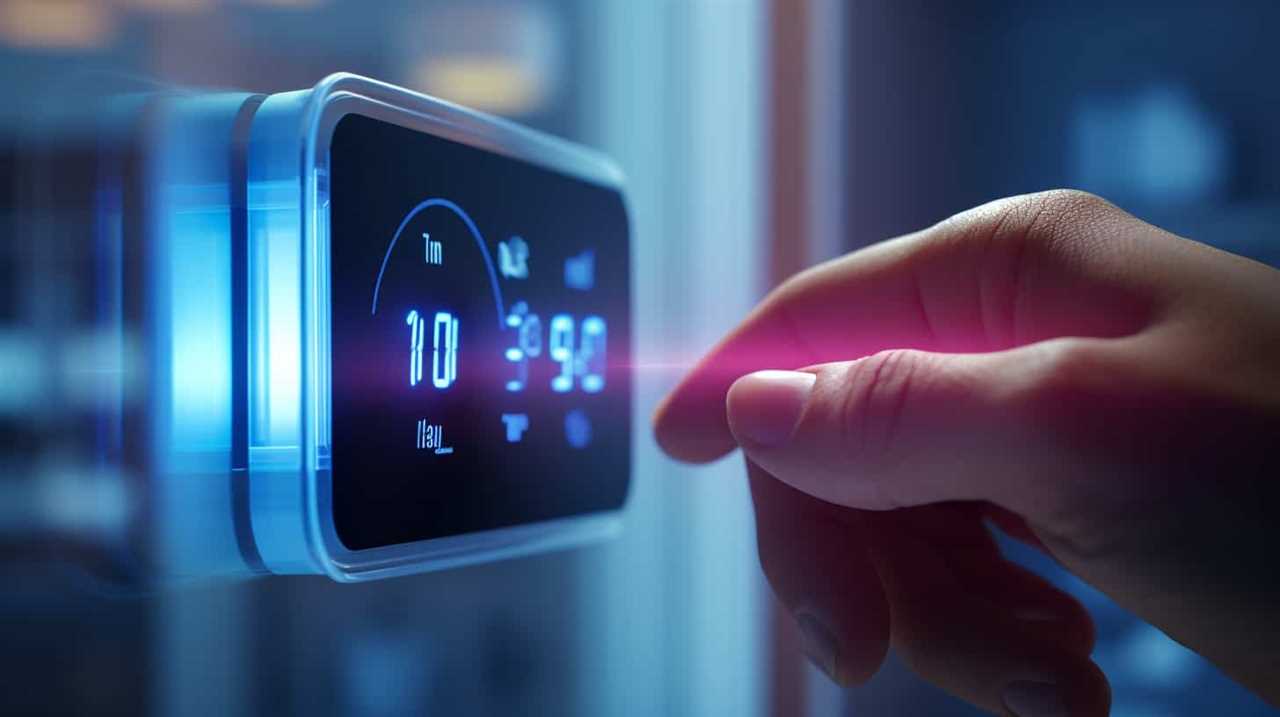
Let’s stay warm and save energy, all while keeping our wallets happy.
Energy Consumption
Instant HVAC Efficiency Gains With Heat Pump Systems

Are you exhausted from receiving high energy bills and dealing with inefficient HVAC systems? You’re in luck! We have the perfect solution for you.
With heat pump systems, we can instantly improve your HVAC efficiency, saving you money and reducing your carbon footprint. These systems are packed with key features and benefits that will revolutionize your home’s heating and cooling.
Don’t settle for outdated technology, join us as we explore the world of heat pump systems and unlock the true potential of your HVAC system.
Key Takeaways
- Heat pump systems reduce the carbon footprint associated with heating and cooling processes.
- They provide both heating and cooling capabilities, reducing reliance on fossil fuels.
- Heat pump systems offer cost savings through reduced energy consumption and lower utility bills.
- They can be integrated with renewable energy sources like solar panels or geothermal energy.
The Importance of Heat Pump Systems in HVAC Efficiency
We believe that heat pump systems play a crucial role in improving HVAC efficiency.
Heat pump systems have the potential to significantly reduce the carbon footprint associated with heating and cooling processes. By utilizing renewable energy sources such as air, ground, or water, heat pumps can extract heat from these sources and transfer it into buildings, providing both heating and cooling capabilities. This reduces the reliance on fossil fuels and decreases greenhouse gas emissions, ultimately contributing to a greener and more sustainable environment.
Additionally, heat pump systems offer potential cost savings in HVAC operations. They’re highly efficient in converting energy, resulting in reduced energy consumption and lower utility bills. With their ability to provide both heating and cooling, heat pump systems offer a versatile and cost-effective solution for HVAC needs.
Transitioning into the subsequent section, let’s explore the key features and benefits of heat pump systems.
Key Features and Benefits of Heat Pump Systems
Heat pump systems offer numerous key features and benefits to enhance HVAC efficiency.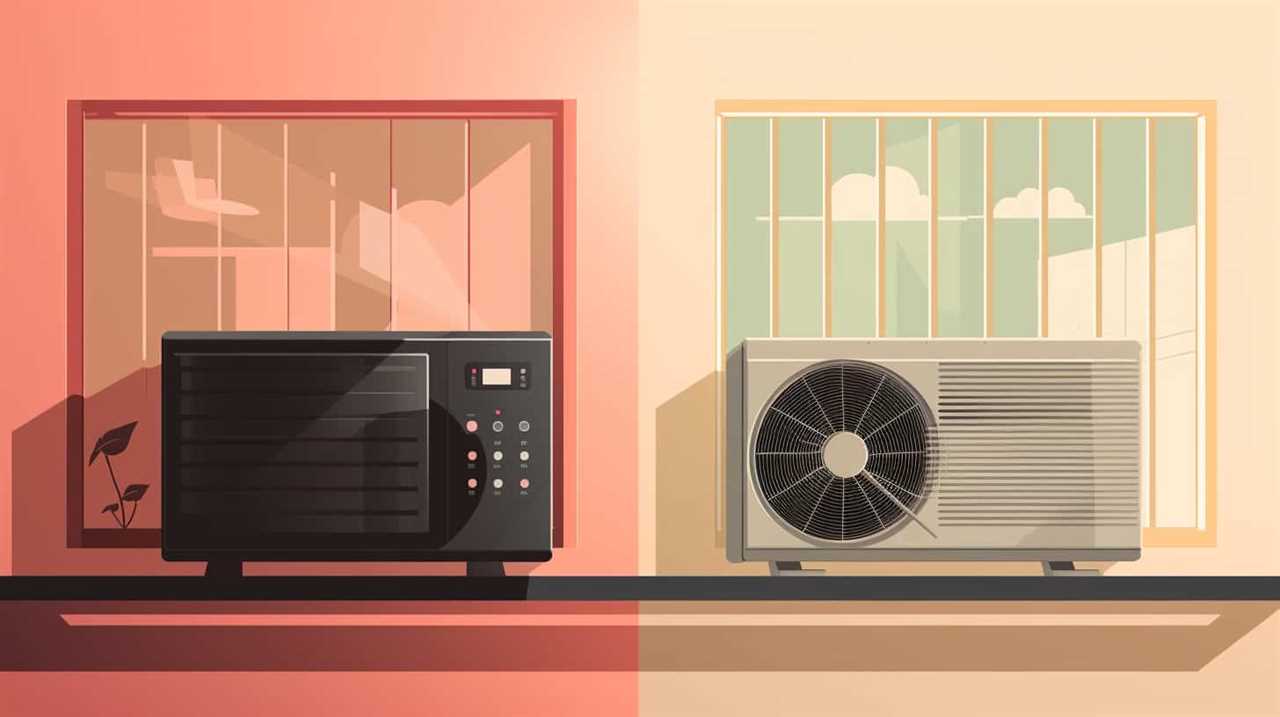
One of the most significant advantages is energy savings. Heat pumps are highly efficient in transferring heat from one area to another, making them more energy-efficient compared to traditional heating and cooling systems. This results in lower energy consumption and reduced utility bills for homeowners and businesses.
Additionally, heat pumps have a lower environmental impact. They use renewable energy sources such as air or ground heat, reducing greenhouse gas emissions and dependence on fossil fuels.
How Heat Pump Systems Improve Energy Efficiency in HVAC
By optimizing heat transfer and reducing energy consumption, heat pump systems significantly enhance the energy efficiency of HVAC systems. These systems offer several advantages that contribute to cost savings and reduce environmental impact:
Improved Heat Transfer: Heat pump systems transfer heat from one location to another, rather than generating it from scratch. This process requires less energy compared to traditional heating and cooling methods.
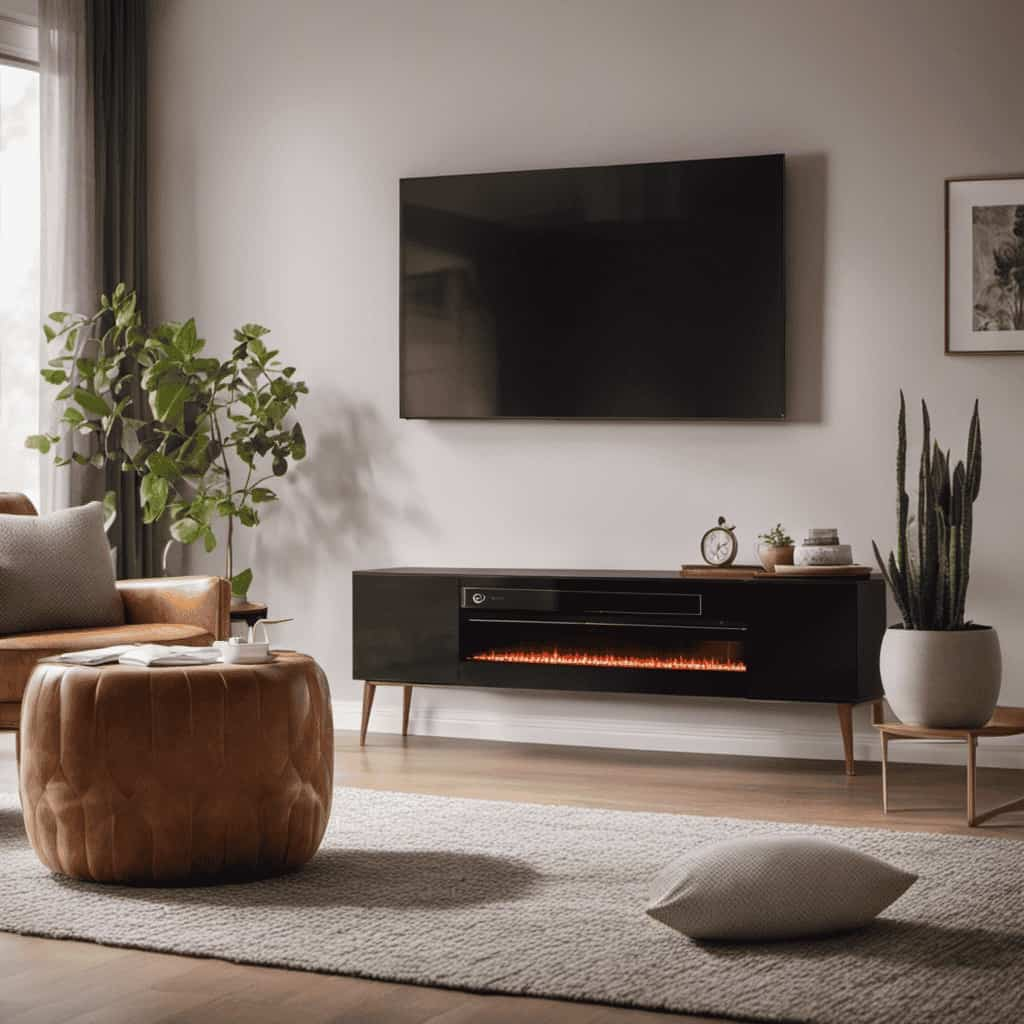
Dual Functionality: Heat pump systems provide both heating and cooling capabilities, eliminating the need for separate systems. This reduces energy consumption and maintenance costs.
Renewable Energy Integration: Heat pump systems can be integrated with renewable energy sources, such as solar panels or geothermal energy, further reducing reliance on fossil fuels.
With these benefits, heat pump systems offer a sustainable and cost-effective solution for HVAC needs.
In the following section, we’ll explore tips for maximizing HVAC efficiency with heat pump systems.
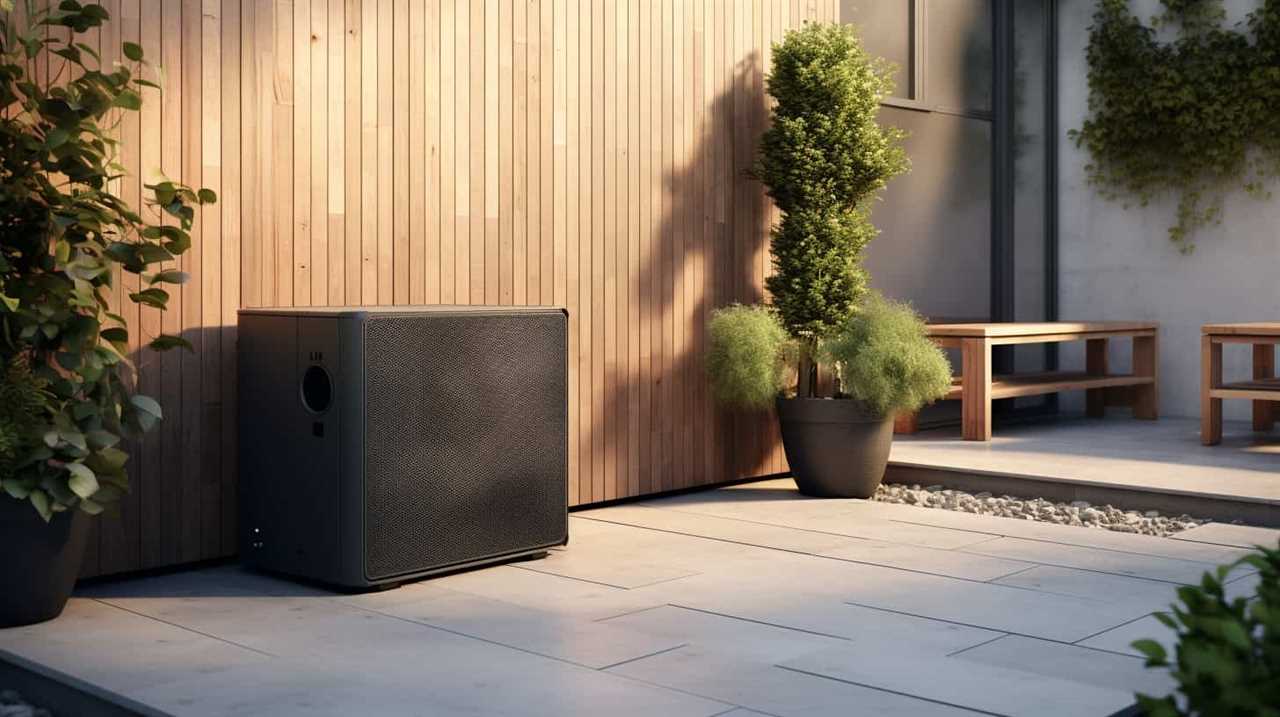
Tips for Maximizing HVAC Efficiency With Heat Pump Systems
To optimize HVAC efficiency with heat pump systems, we recommend implementing proper maintenance and regular inspections. By following these energy-saving tips and ensuring regular heat pump maintenance, you can maximize the efficiency of your HVAC system.
Firstly, it’s important to clean or replace air filters regularly. Dirty filters restrict airflow and reduce the system’s efficiency. Additionally, keeping the outdoor unit clean and free from debris allows for better heat exchange.
Next, consider installing a programmable thermostat. This allows you to set different temperatures for specific times of the day, ensuring your system only runs when needed.
Regularly checking and sealing any air leaks in your home can also help improve efficiency. Leaks can waste energy by allowing conditioned air to escape and allowing unconditioned air to enter.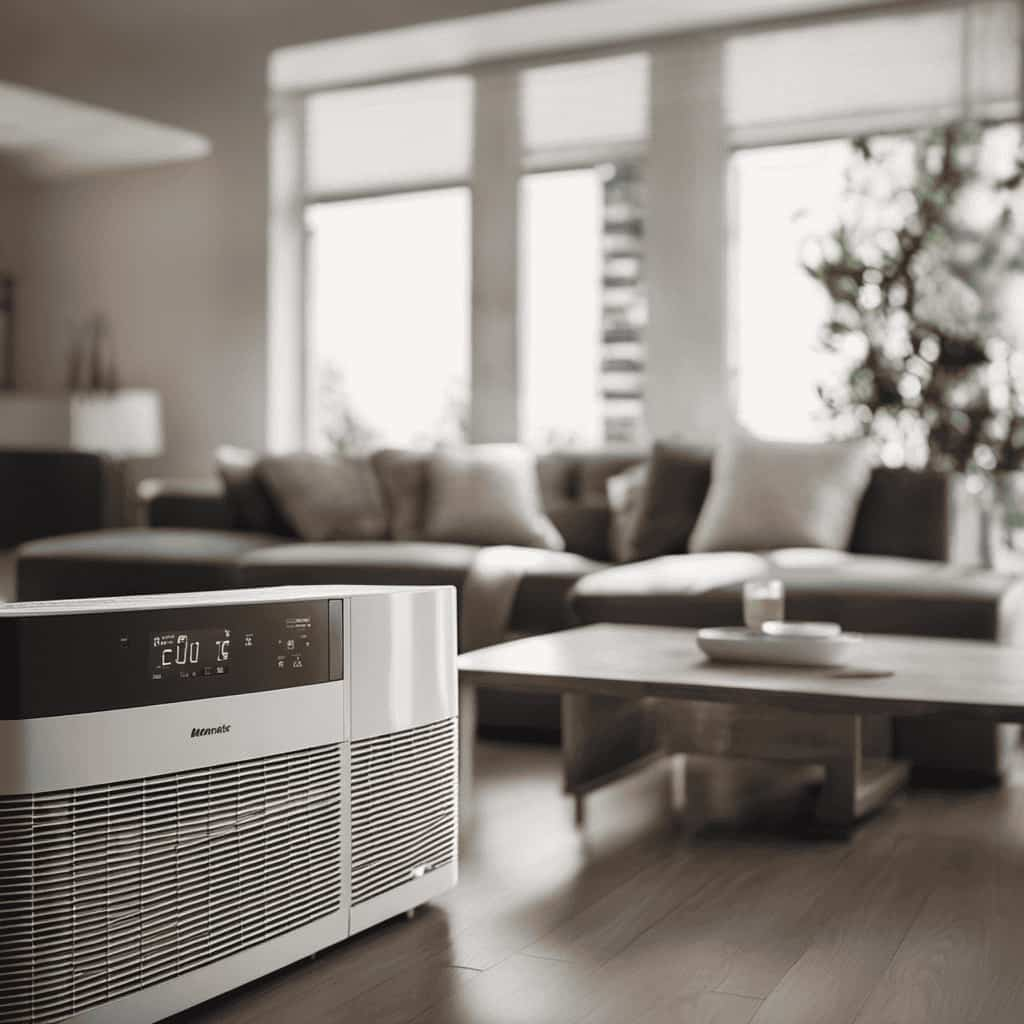
Lastly, scheduling professional maintenance and inspections twice a year can ensure that your heat pump system is running at its peak efficiency. A professional can identify and address any issues before they become major problems.
Case Studies: Real-Life Examples of HVAC Efficiency Gains With Heat Pump Systems
We frequently examine real-life case studies that demonstrate the HVAC efficiency gains achieved with heat pump systems. These case studies provide real-world examples of how heat pump systems can significantly improve HVAC efficiency.
Here are two sub-lists that showcase the benefits of heat pump systems:
Case Study 1: Residential Setting
- A homeowner in a cold climate replaced their traditional HVAC system with a heat pump system.
- The heat pump system reduced their heating costs by 30% and their cooling costs by 40%.
- The homeowner also experienced improved comfort levels throughout their home.
Case Study 2: Commercial Building
- A commercial building in a hot and humid area upgraded their HVAC system to a heat pump system.
- The heat pump system reduced energy consumption by 25% and lowered maintenance costs.
- The building occupants reported increased satisfaction with the indoor air quality and temperature control.
These case studies demonstrate the real-life benefits of using heat pump systems to achieve HVAC efficiency gains. By adopting this technology, both residential and commercial properties can enjoy significant energy savings and improved comfort.
Frequently Asked Questions
How Much Does a Heat Pump System Cost to Install and Maintain?
Installing and maintaining a heat pump system can vary greatly in cost. However, when considering the cost comparison and potential energy savings, investing in a heat pump system can lead to long-term savings and increased HVAC efficiency.
Are Heat Pump Systems Suitable for Both Residential and Commercial HVAC Applications?
Heat pump systems offer remarkable efficiency gains in both residential and commercial HVAC applications. The benefits include increased energy savings, reduced carbon footprint, and improved indoor comfort. They’re a cost-effective and sustainable solution for all your heating and cooling needs.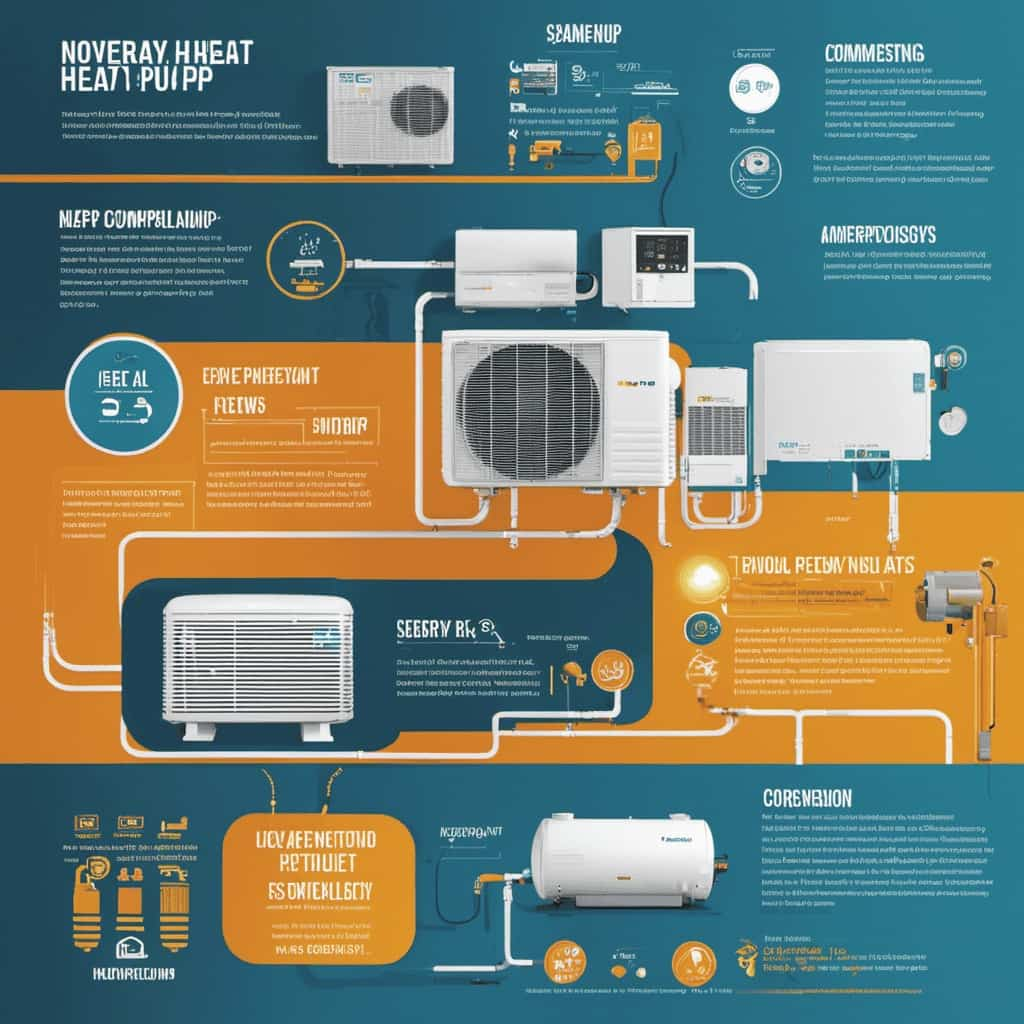
What Is the Lifespan of a Heat Pump System and When Should It Be Replaced?
When it comes to the lifespan of a heat pump system and signs of replacement, it’s important to consider factors like regular maintenance, efficiency decline, and major repairs. Consulting with a professional can help determine the best course of action.
Can Heat Pump Systems Be Used in Conjunction With Other HVAC Systems?
Yes, heat pump systems can be used in conjunction with other HVAC systems. By integrating a heat pump with traditional HVAC, we can achieve greater efficiency and energy savings, ensuring optimal comfort and liberation from high energy costs.
Are There Any Government Incentives or Rebates Available for Installing a Heat Pump System?
Government incentives and rebates are available for installing heat pump systems, providing energy savings and reducing costs. These incentives vary depending on location and may include tax credits or utility rebates.
How Do Heat Pump Systems Help in Saving Energy for HVAC Systems?
Heat pump systems play a vital role in conserving energy for HVAC systems. These energy-efficient heat pump systems reviewed have the ability to extract heat from the outside air, even during colder months, and transfer it indoors. By utilizing this renewable source of energy, heat pumps drastically reduce the amount of electricity required for heating and cooling, resulting in substantial energy savings.
Conclusion
In conclusion, heat pump systems are the superheroes of HVAC efficiency, swooping in to save the day with their incredible energy-saving abilities. With their key features and benefits, heat pump systems elevate the efficiency of HVAC systems to new heights.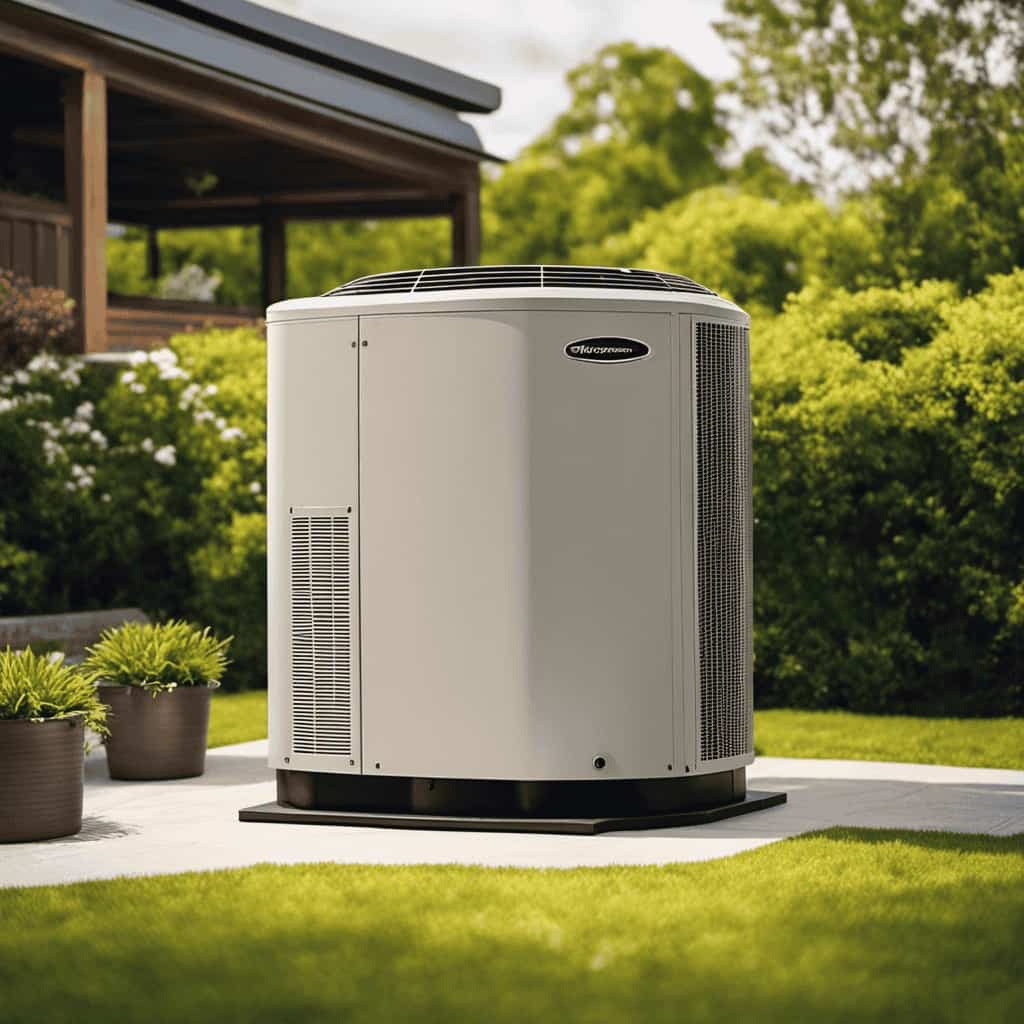
By following our tips, you can maximize the efficiency gains and witness the magic of heat pumps firsthand. So join the efficiency revolution and let heat pump systems be the driving force in your HVAC journey.
Together, we can conquer energy wastage and create a more sustainable future.
-

 Residential and Commercial Applications3 months ago
Residential and Commercial Applications3 months agoBest Amana Heat Pump Reviews
-

 Thermal Energy Transfer3 months ago
Thermal Energy Transfer3 months agoBreakthroughs in Modern Heat Pump Systems: Thermal Energy Edition
-

 Residential and Commercial Applications3 months ago
Residential and Commercial Applications3 months agoBest Heat Pump
-

 Geothermal Heat Pumps2 months ago
Geothermal Heat Pumps2 months agoUpgrade Your Comfort with Our Efficient HVAC Systems
-

 Geothermal Heat Pumps2 months ago
Geothermal Heat Pumps2 months agoInnovative Geothermal Heat Pump Manufacturers Revolutionize Energy Efficiency
-

 Air Conditioning4 weeks ago
Air Conditioning4 weeks agoExploring Energy-Efficient Air Conditioning Heat Pumps
-

 Thermal Energy Transfer3 months ago
Thermal Energy Transfer3 months agoBoost Your Heat Pump Efficiency: Interactive Guide
-

 Residential and Commercial Applications3 months ago
Residential and Commercial Applications3 months agoBest Portable Heat Pump Heat & AC











